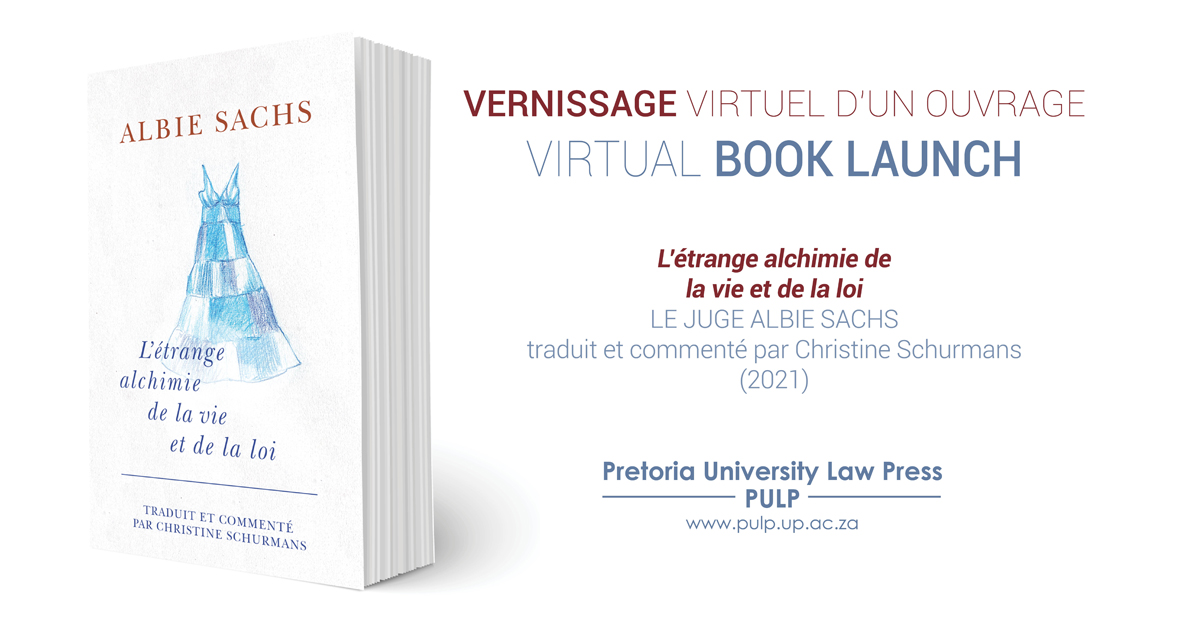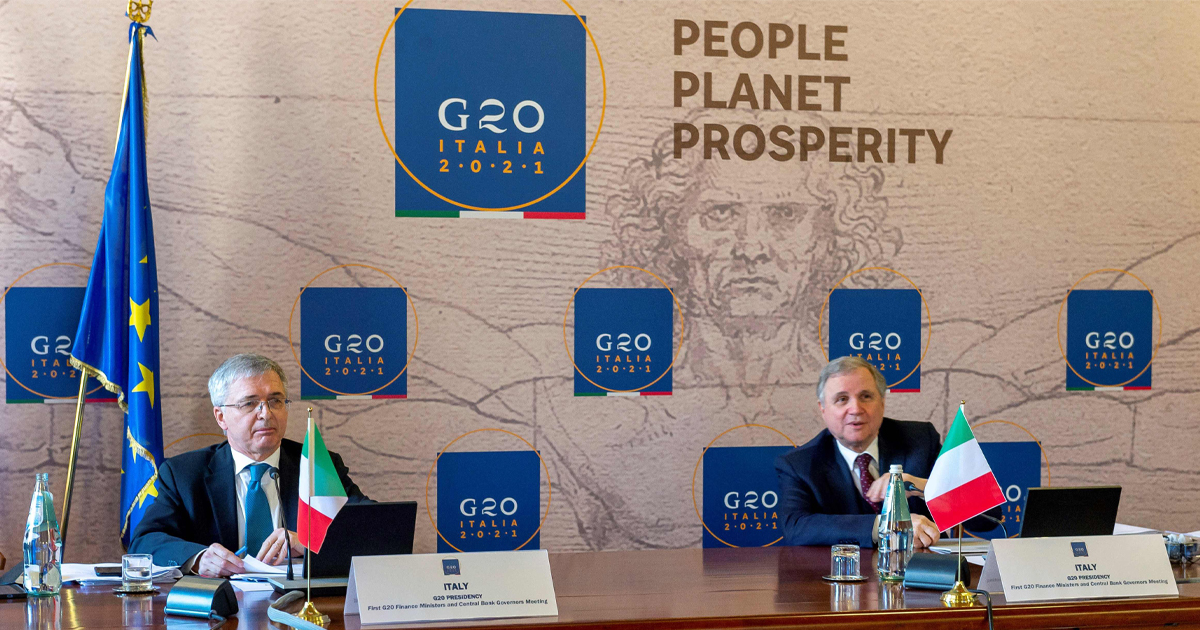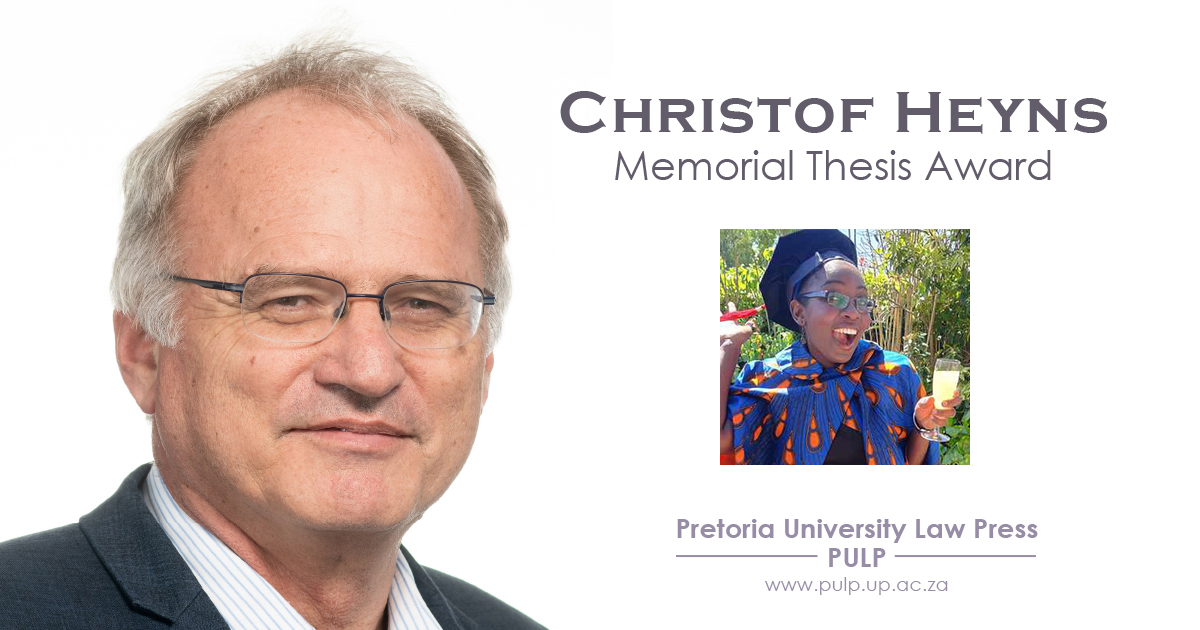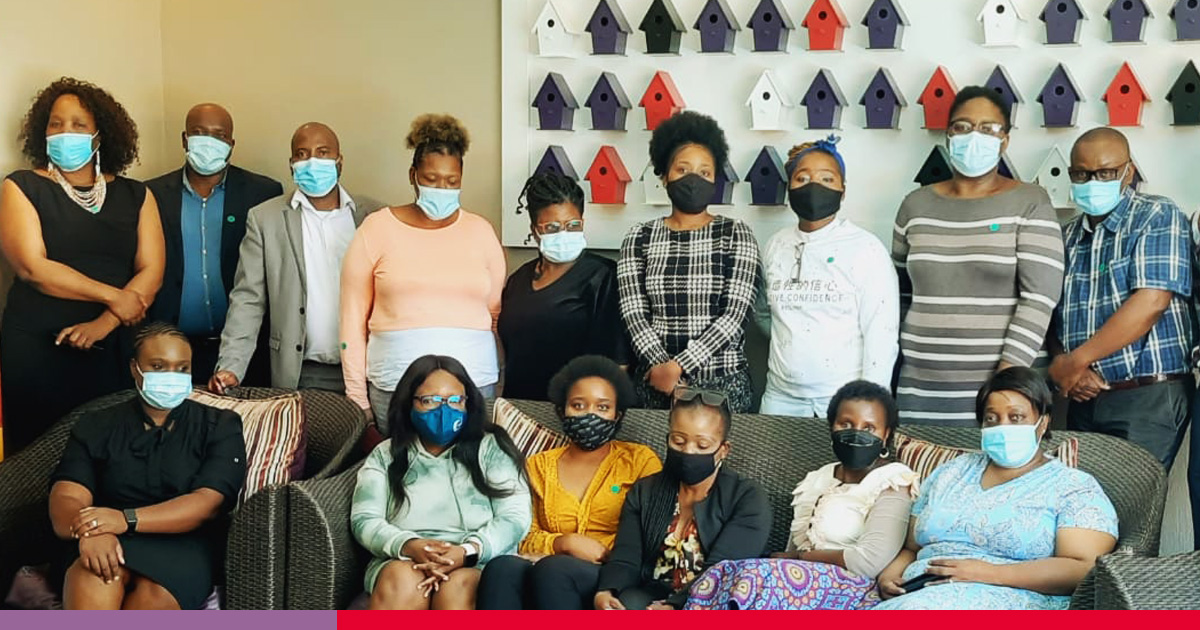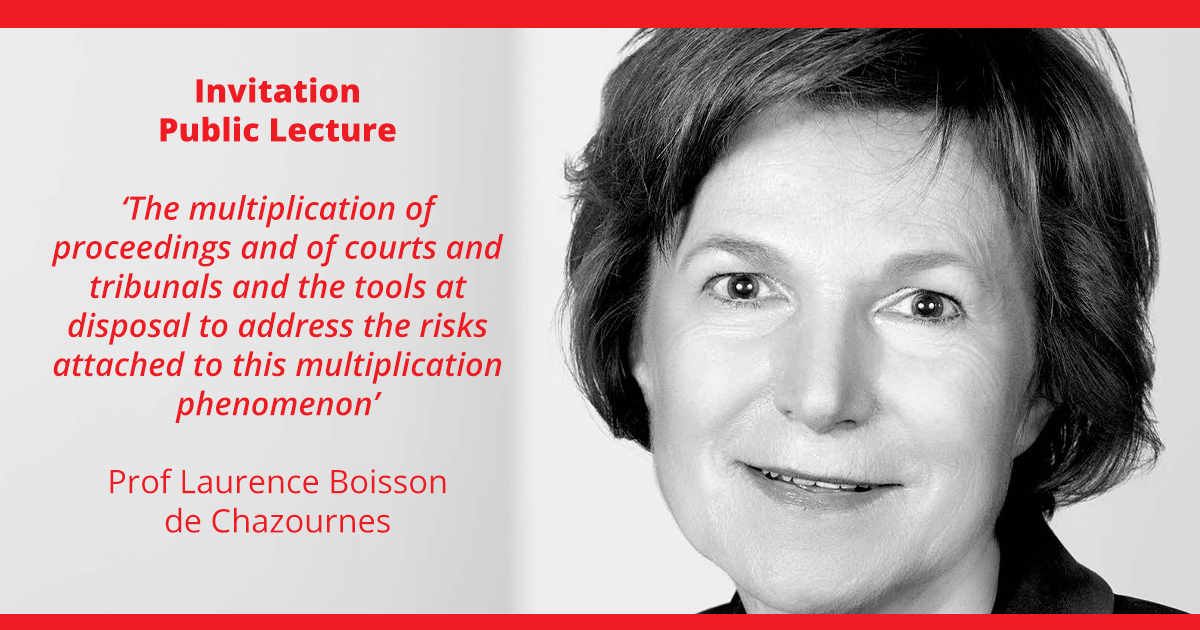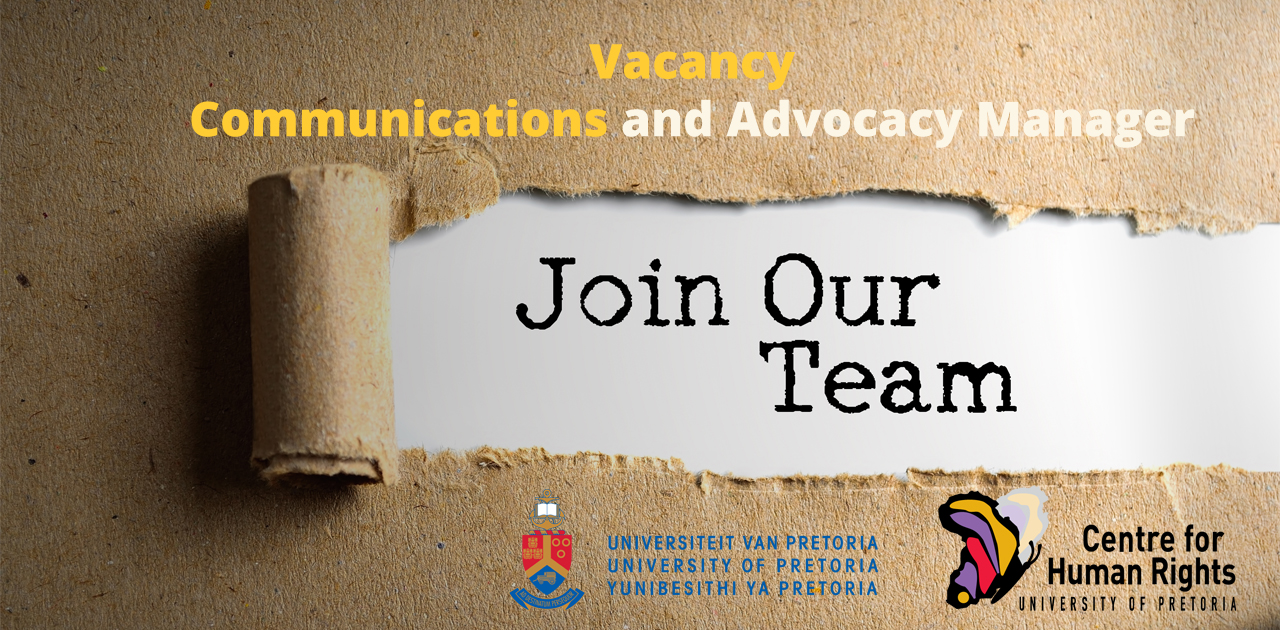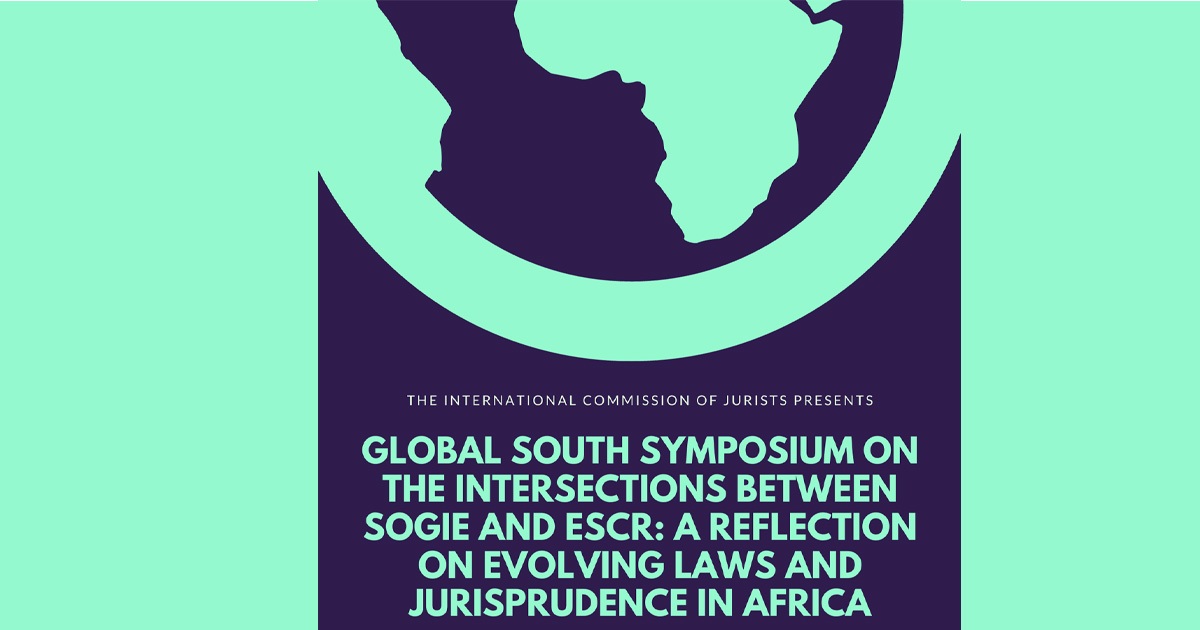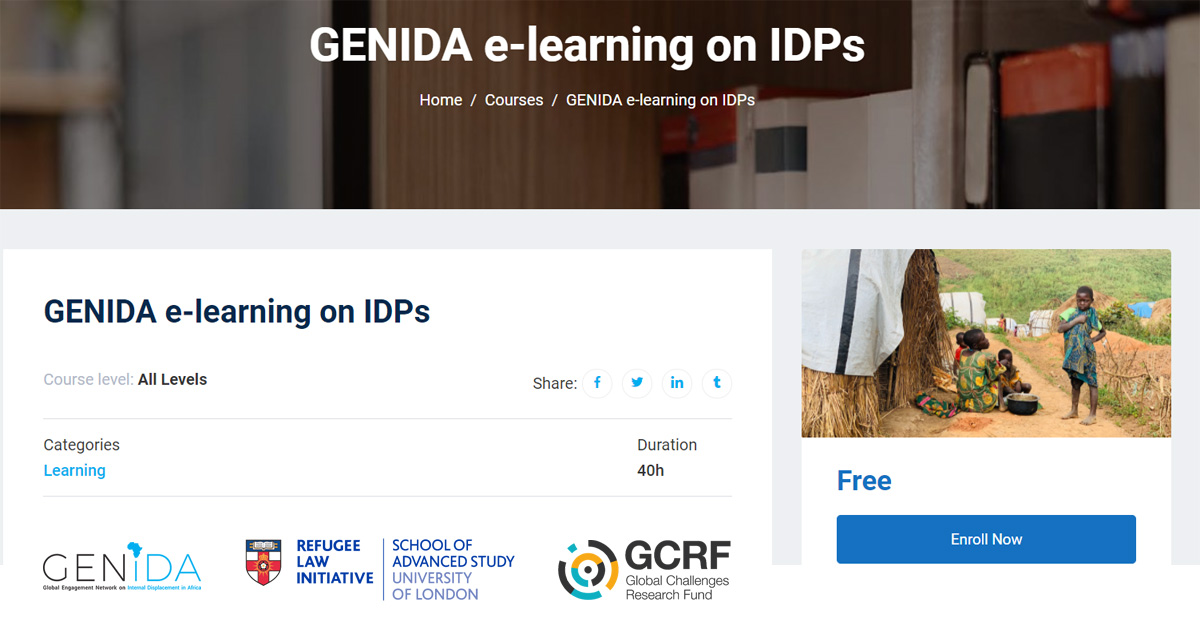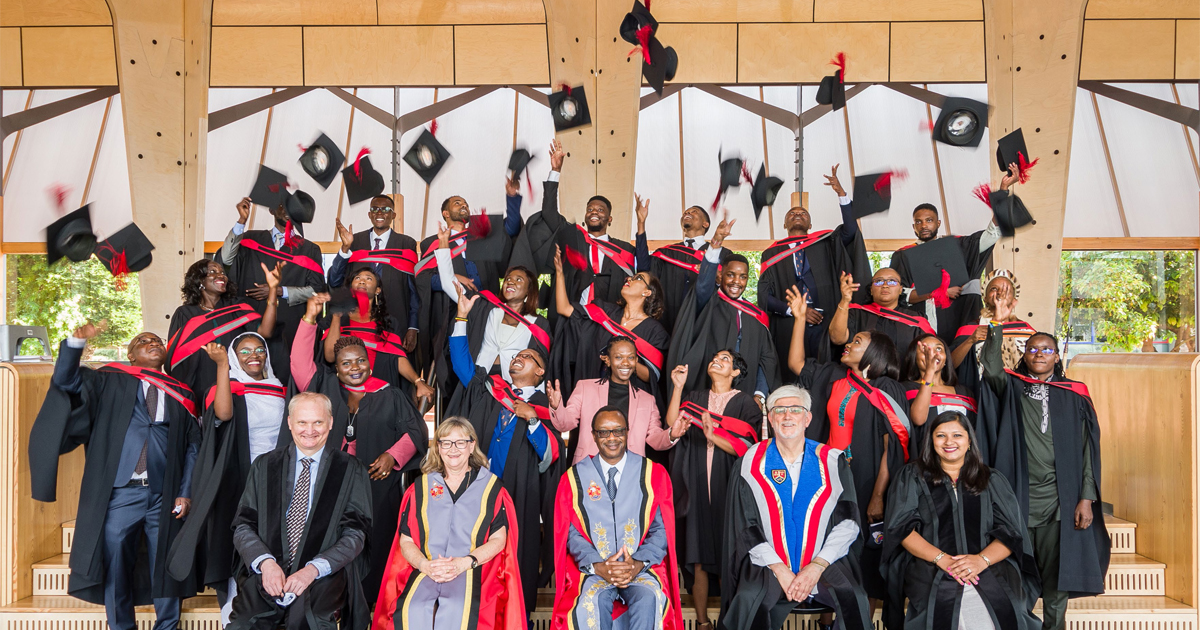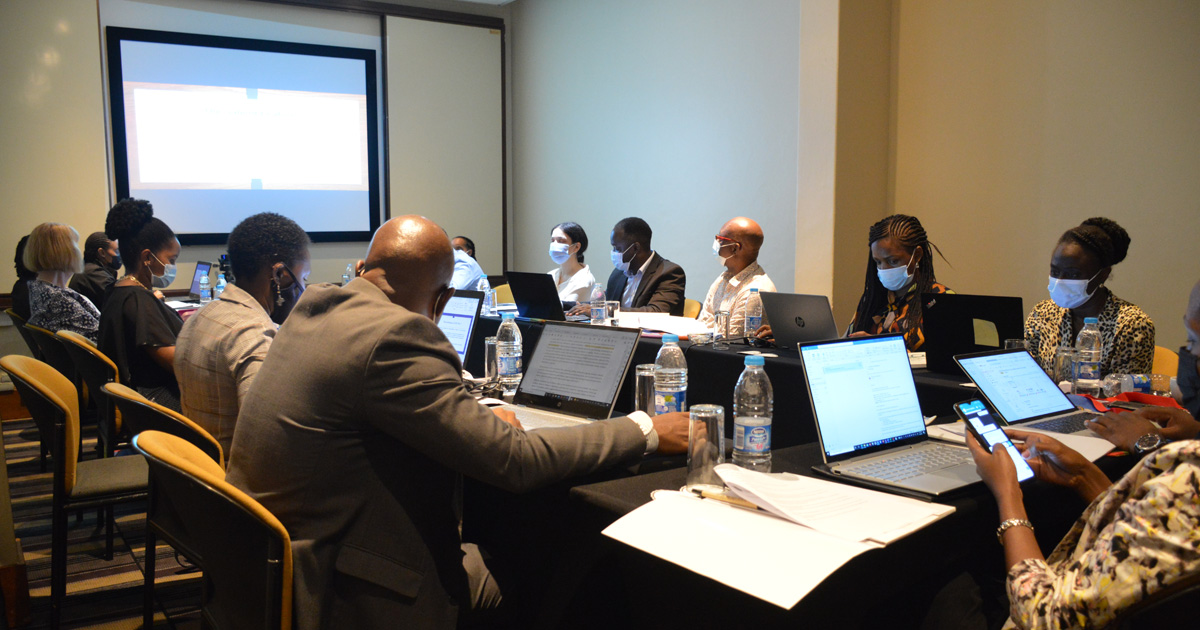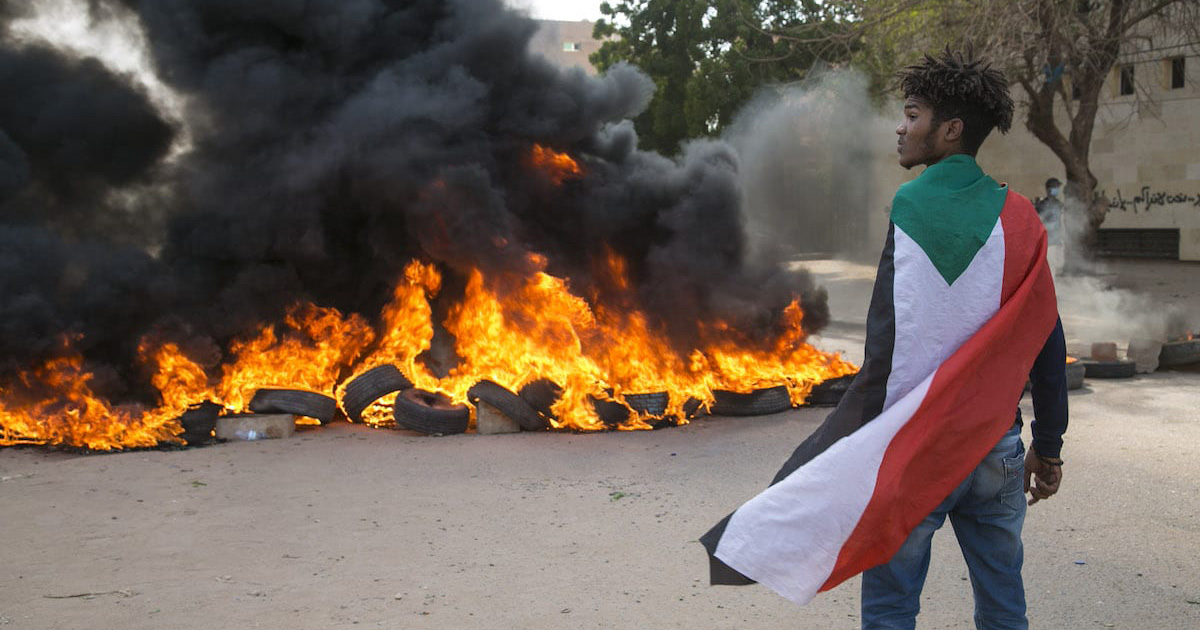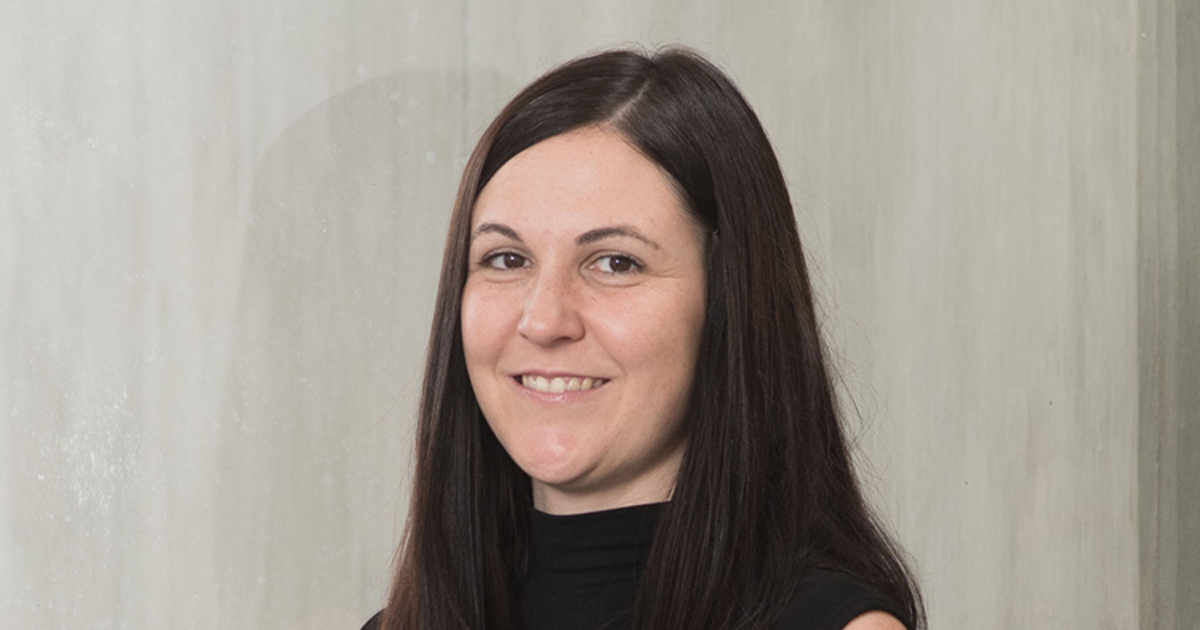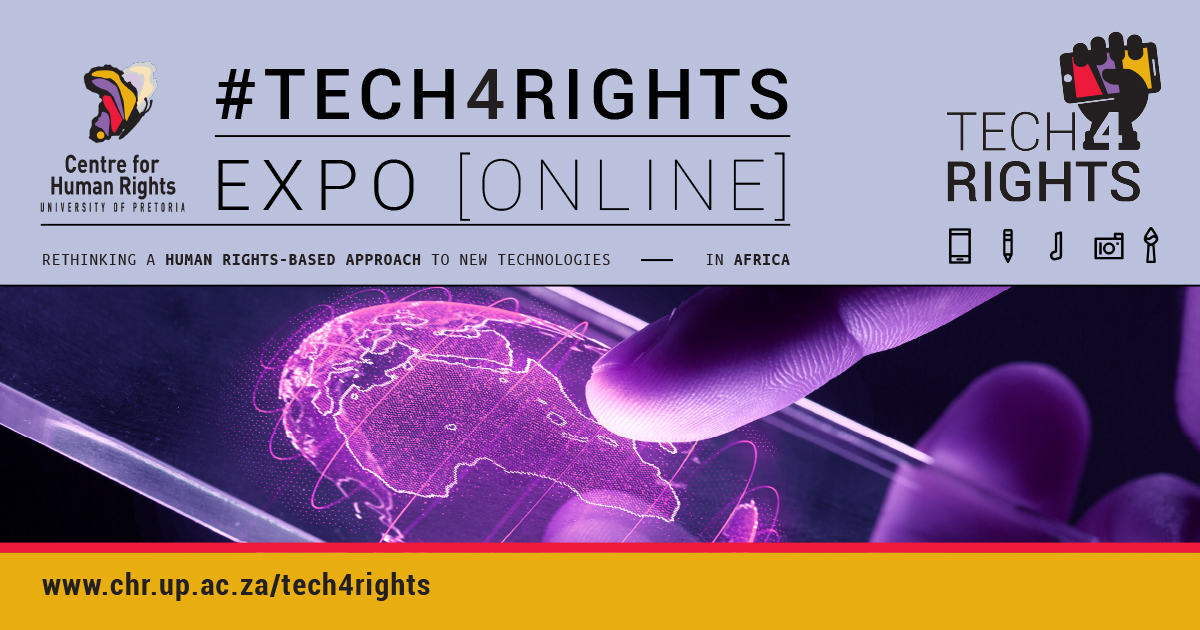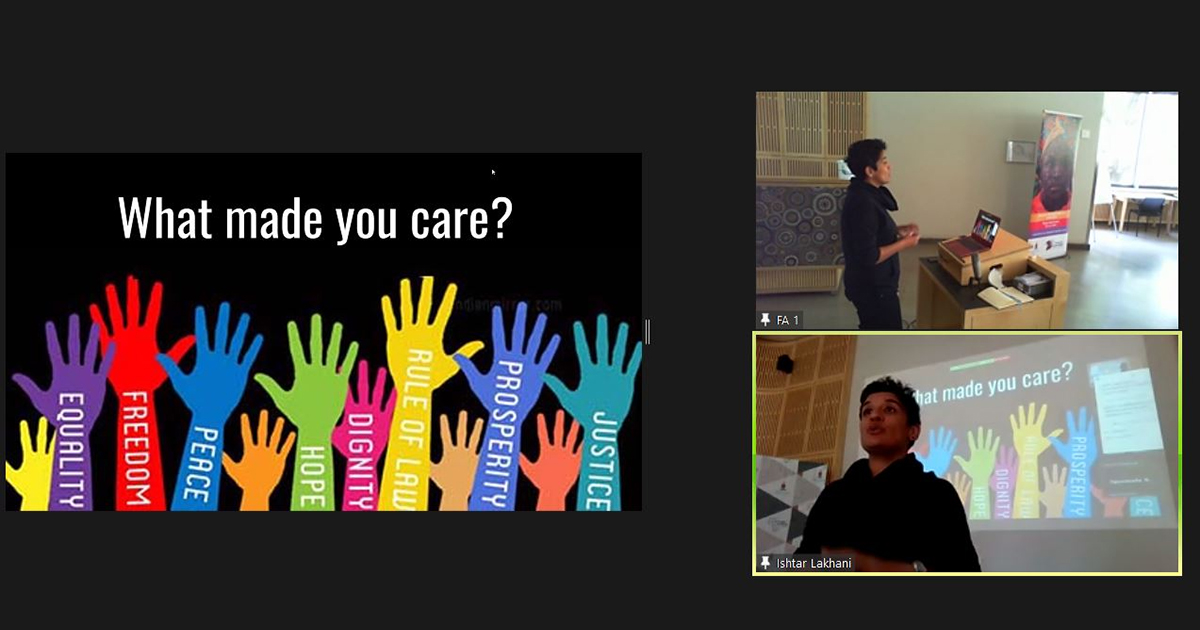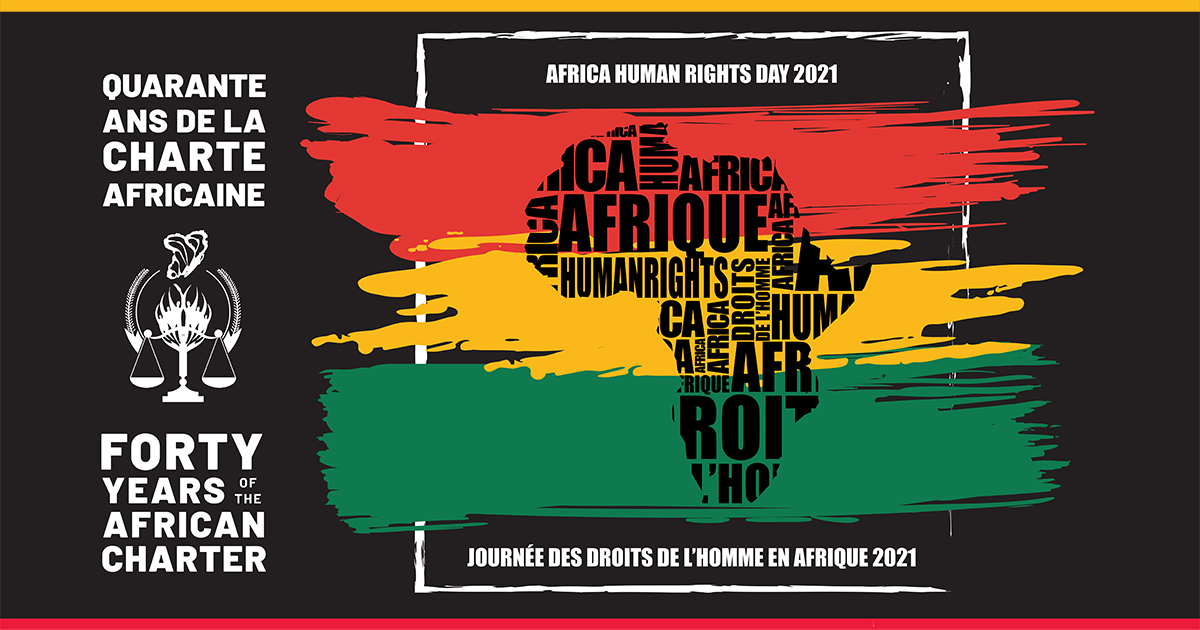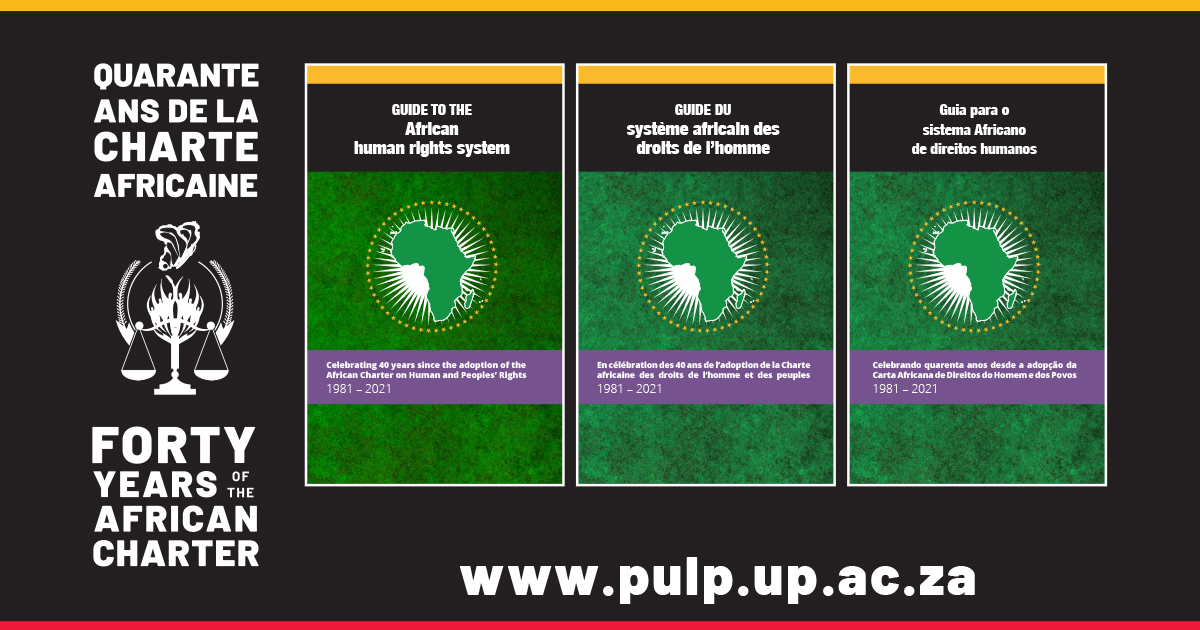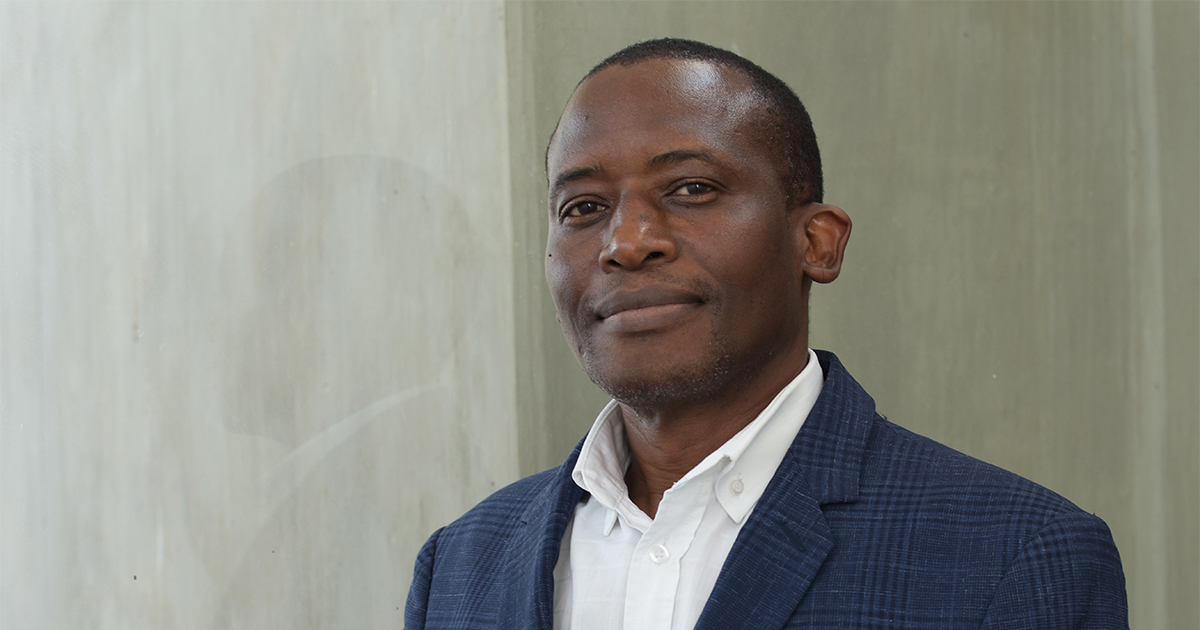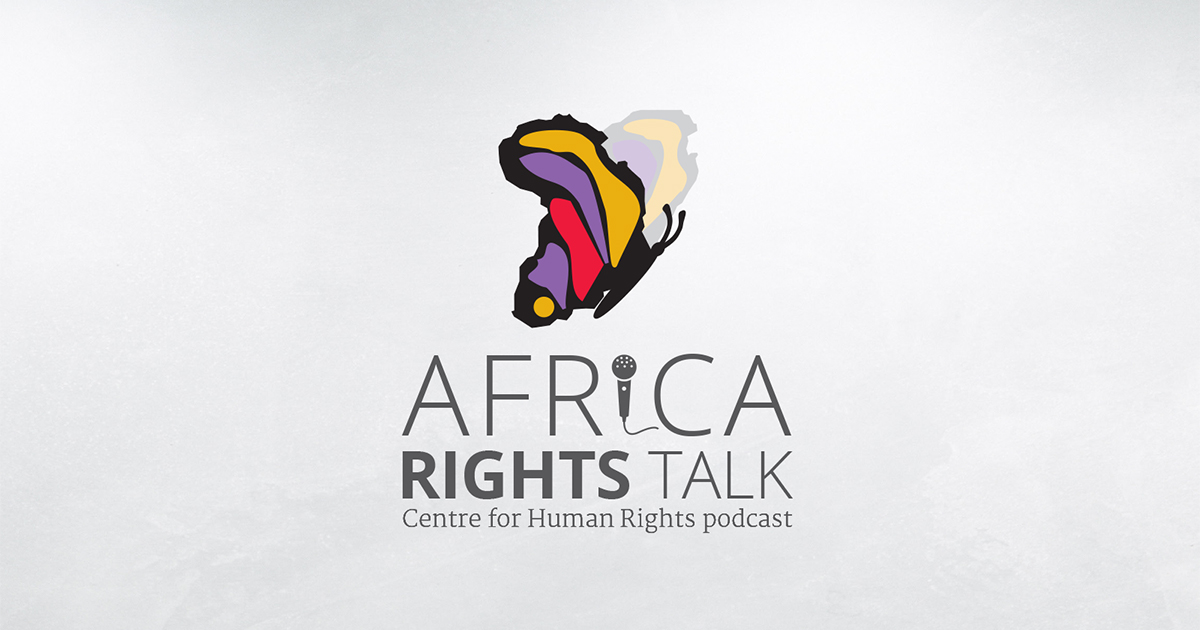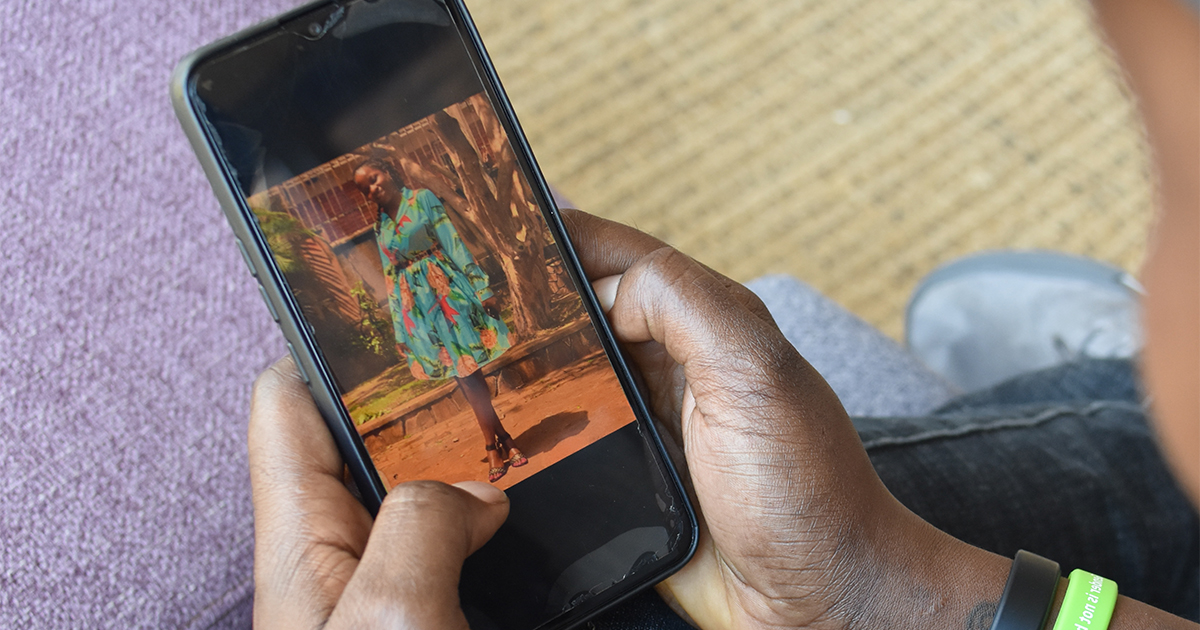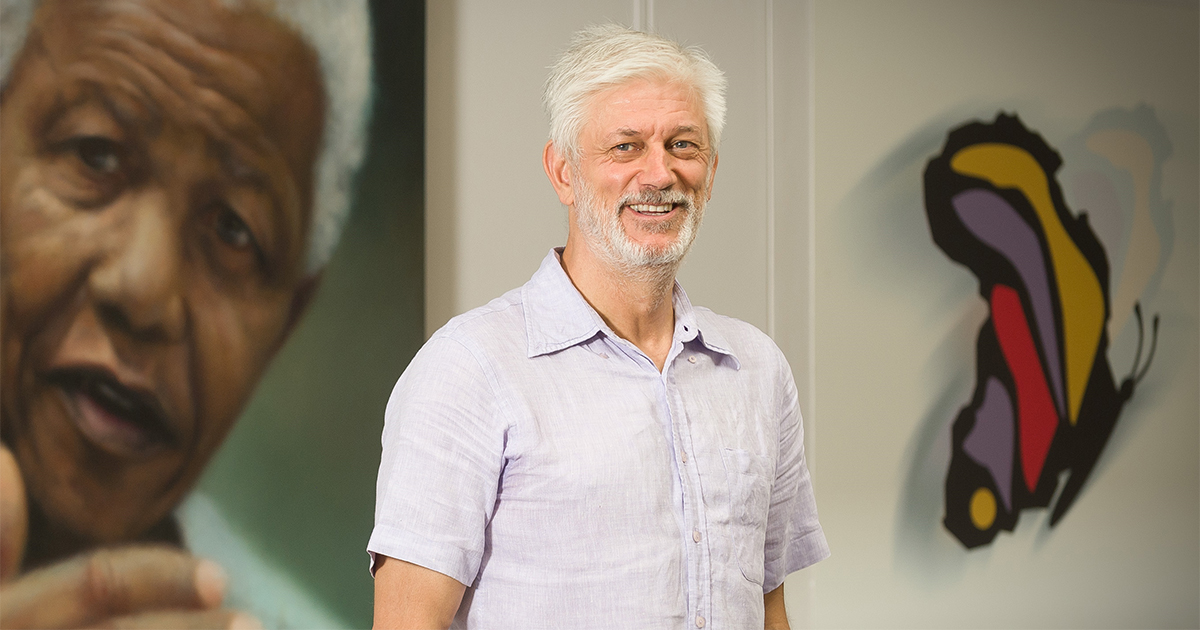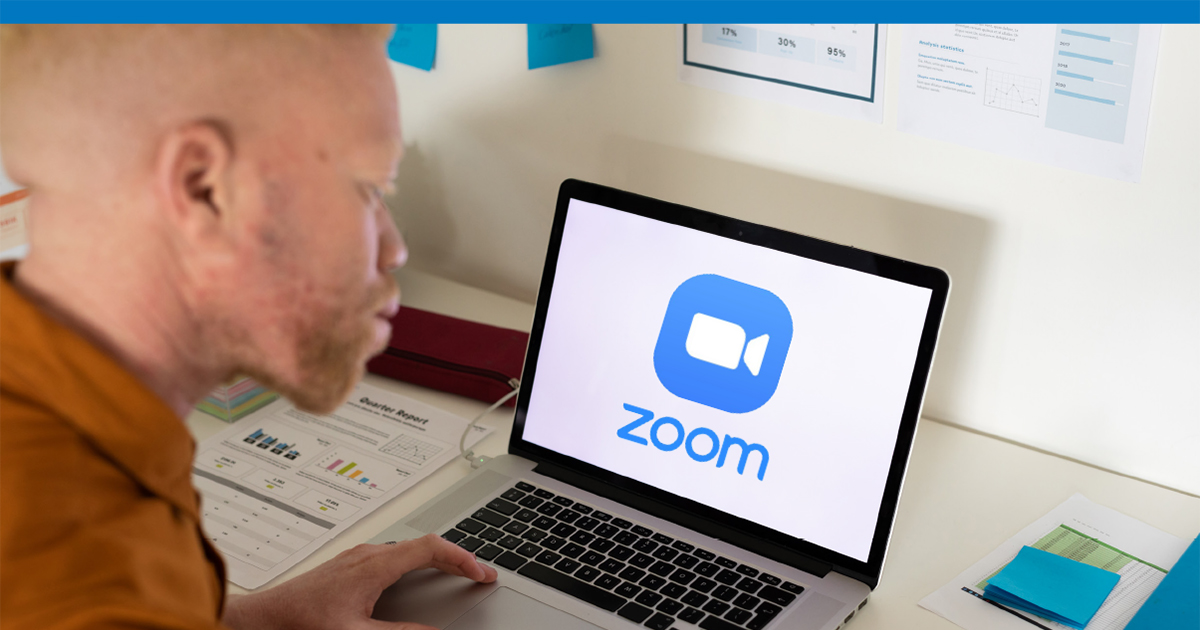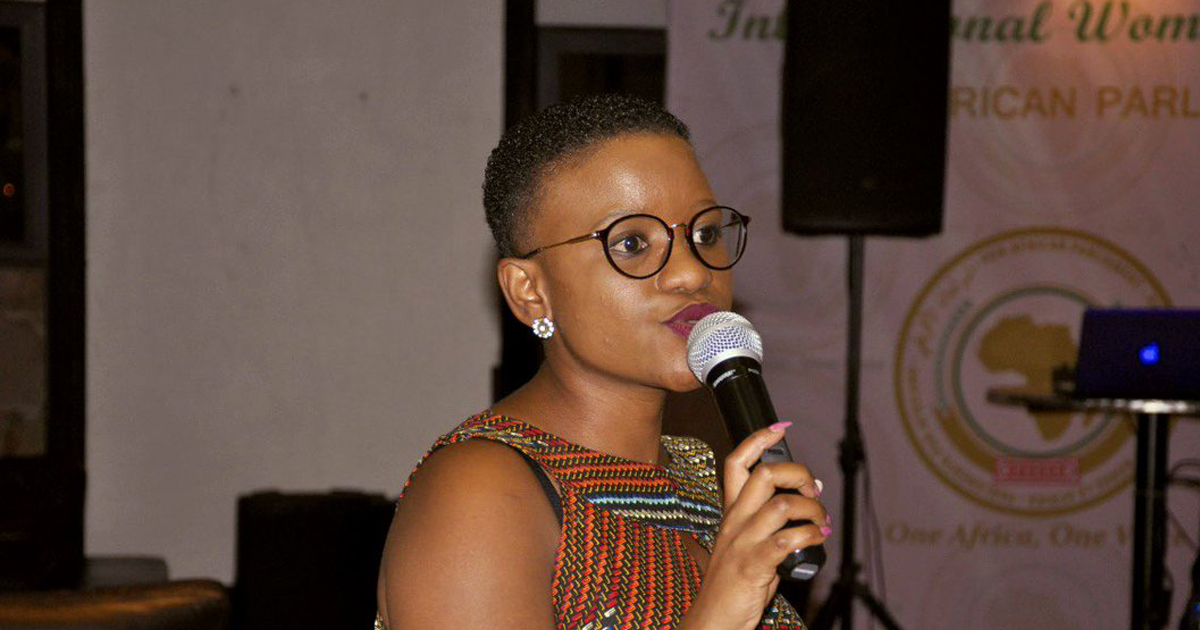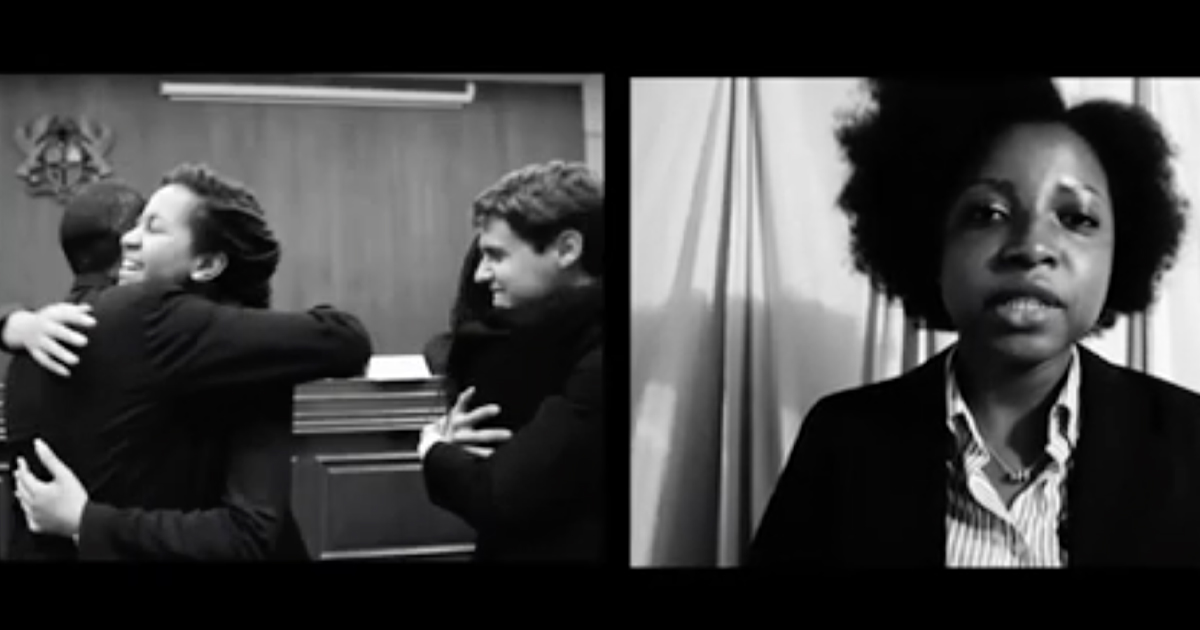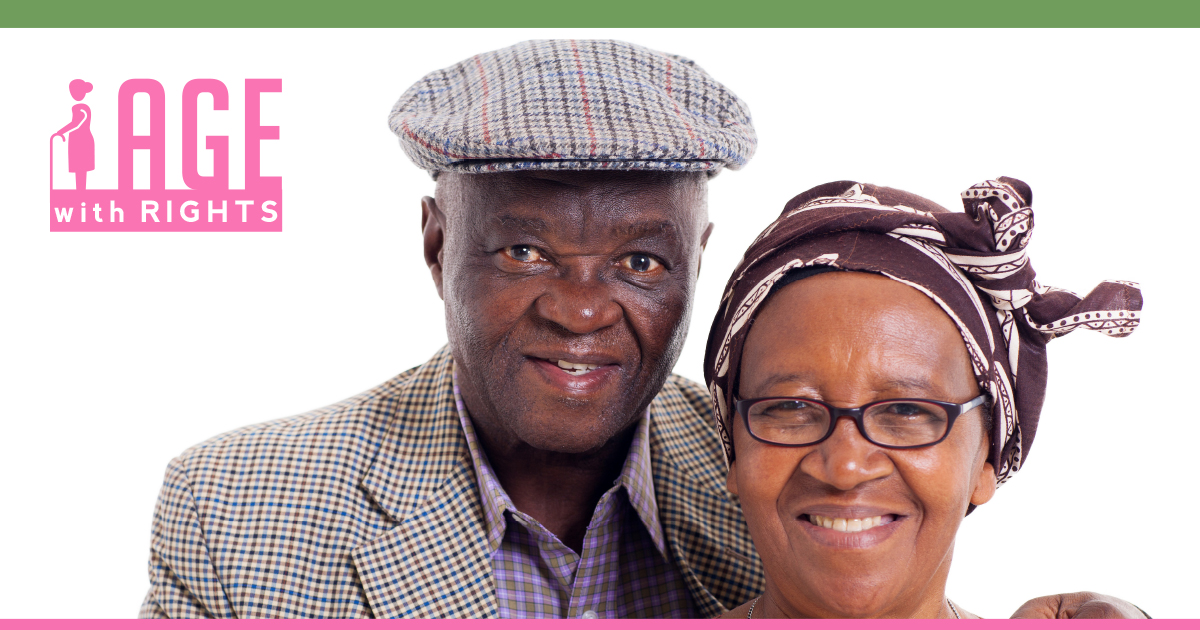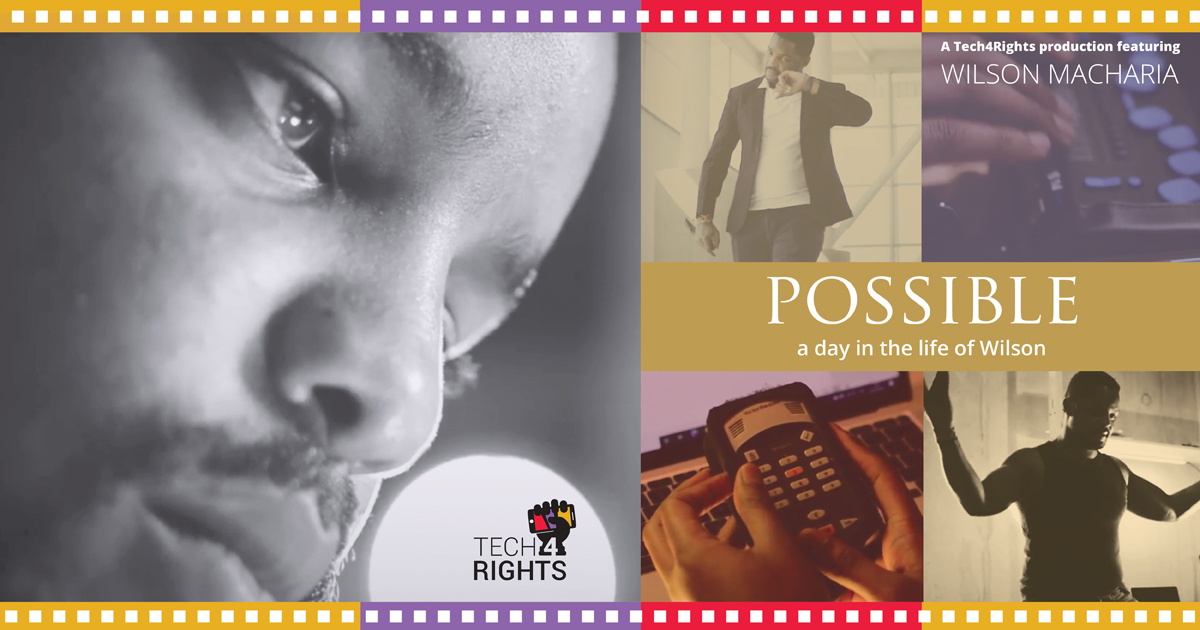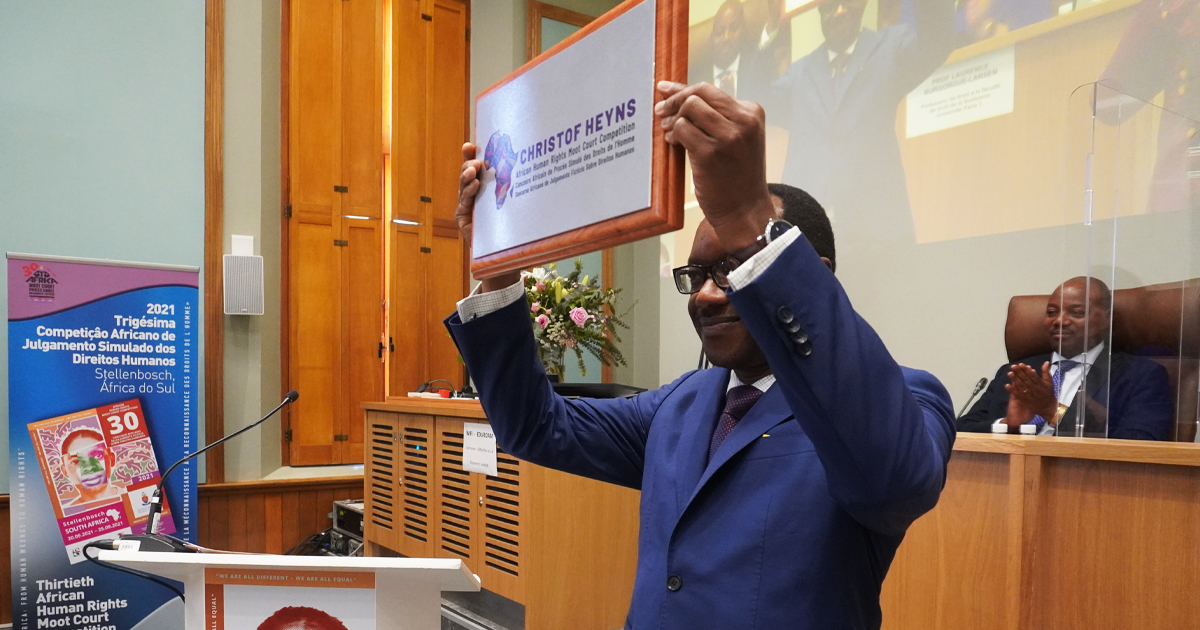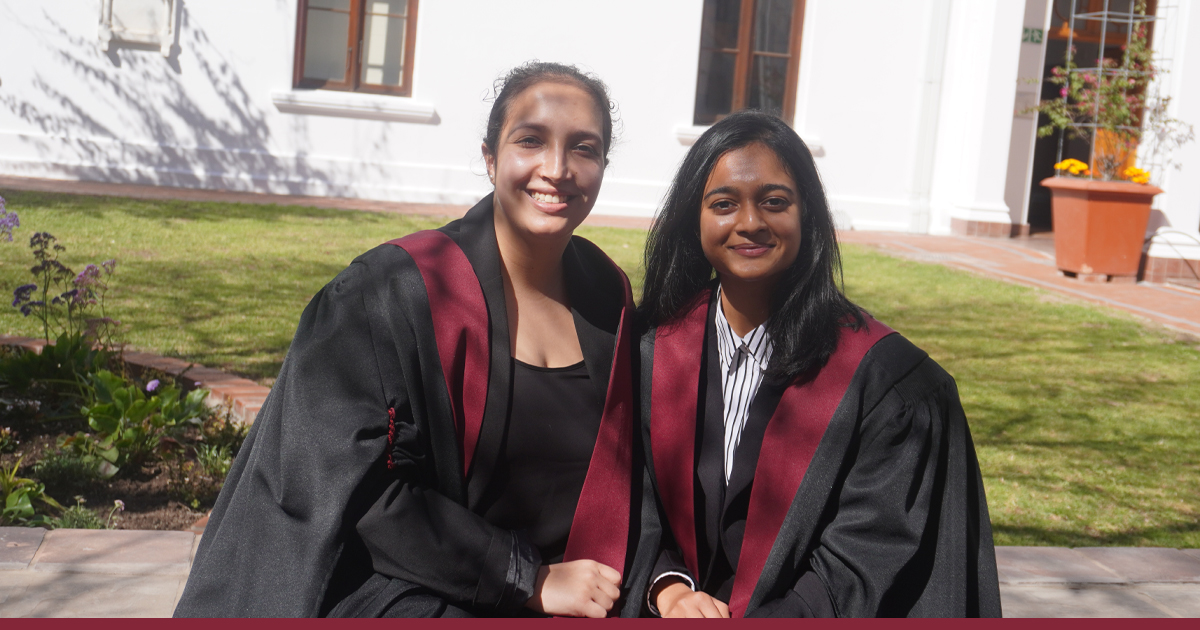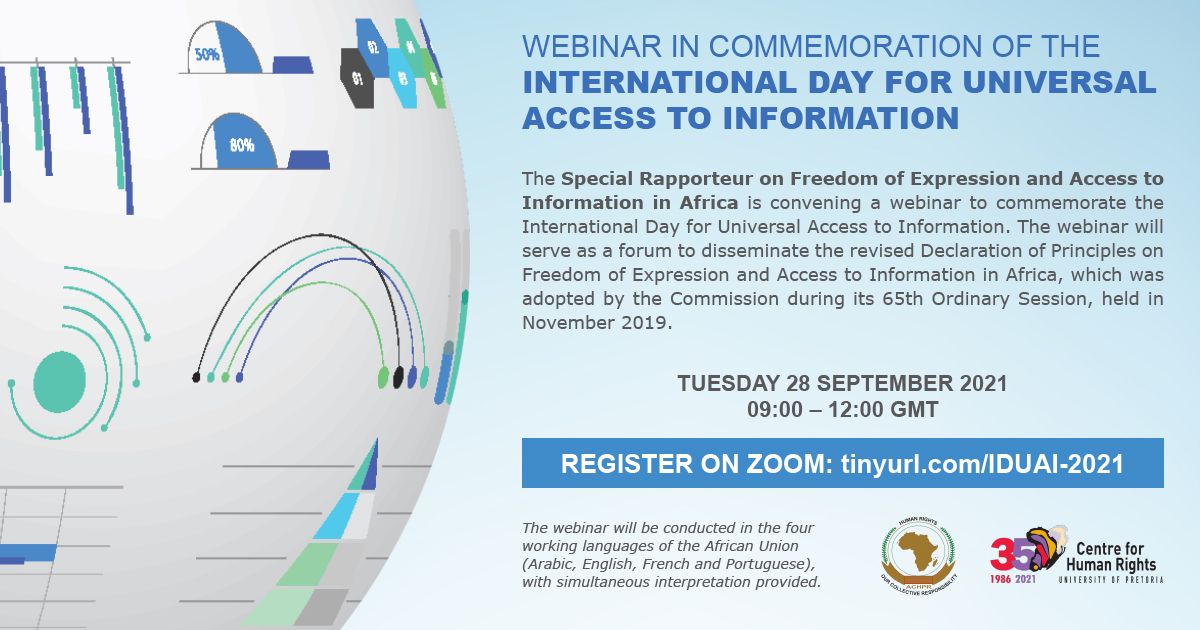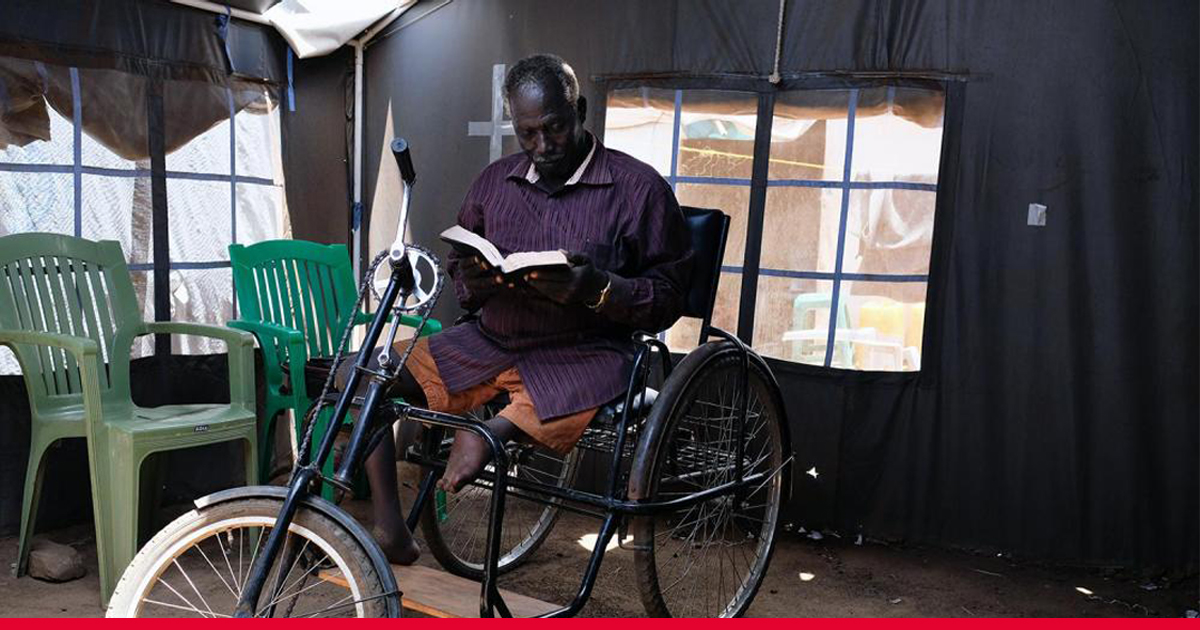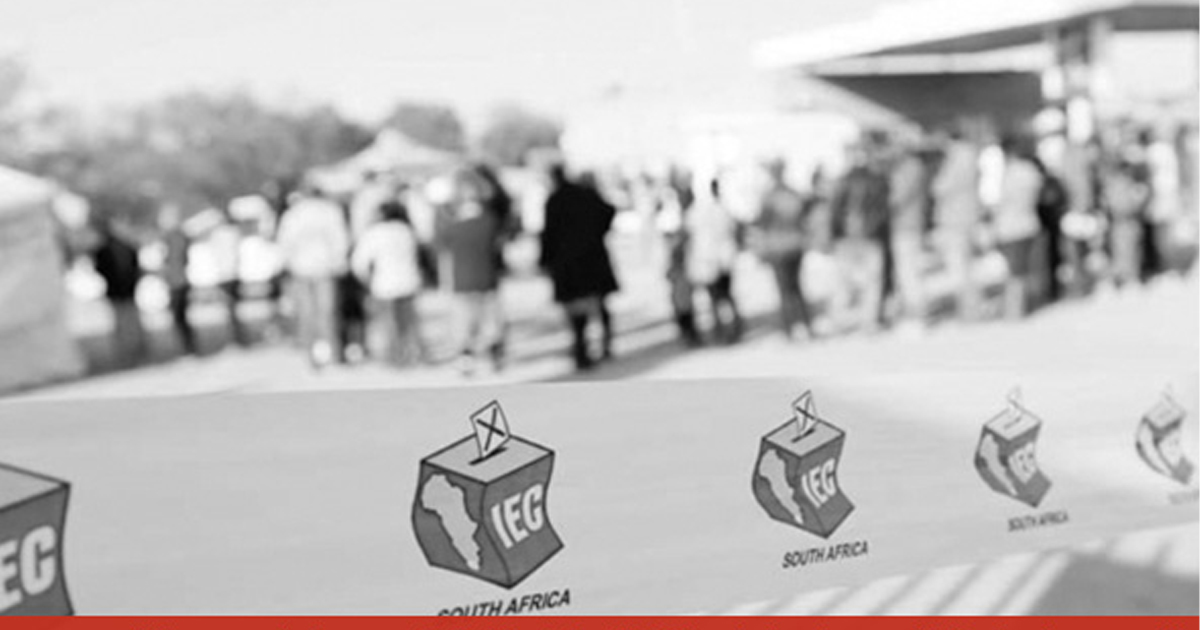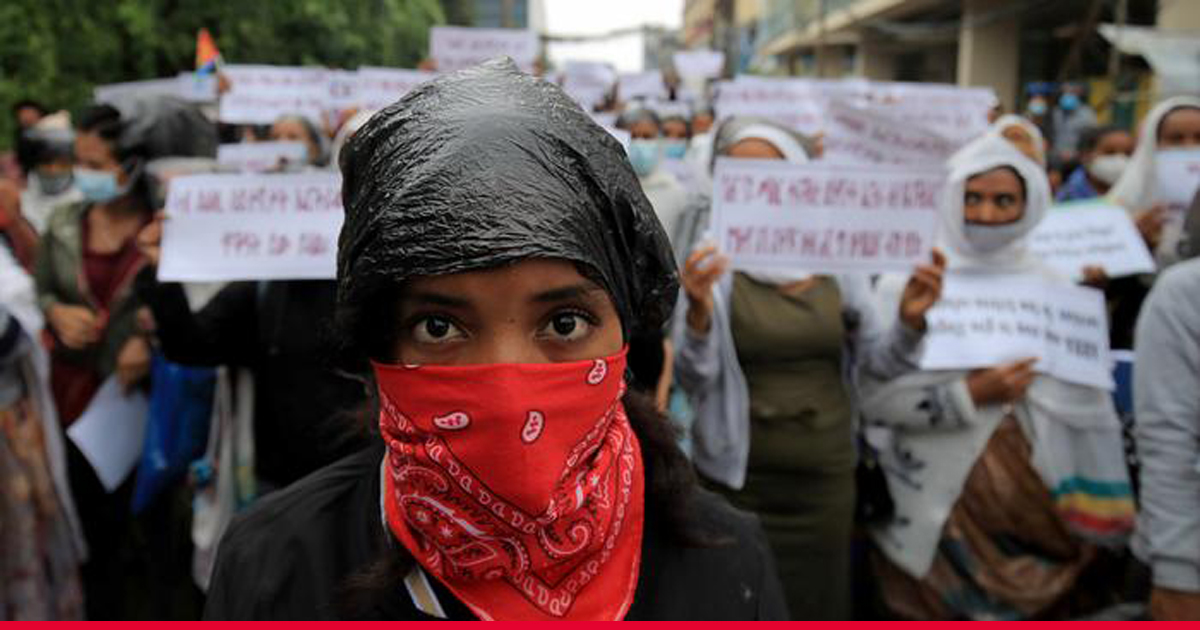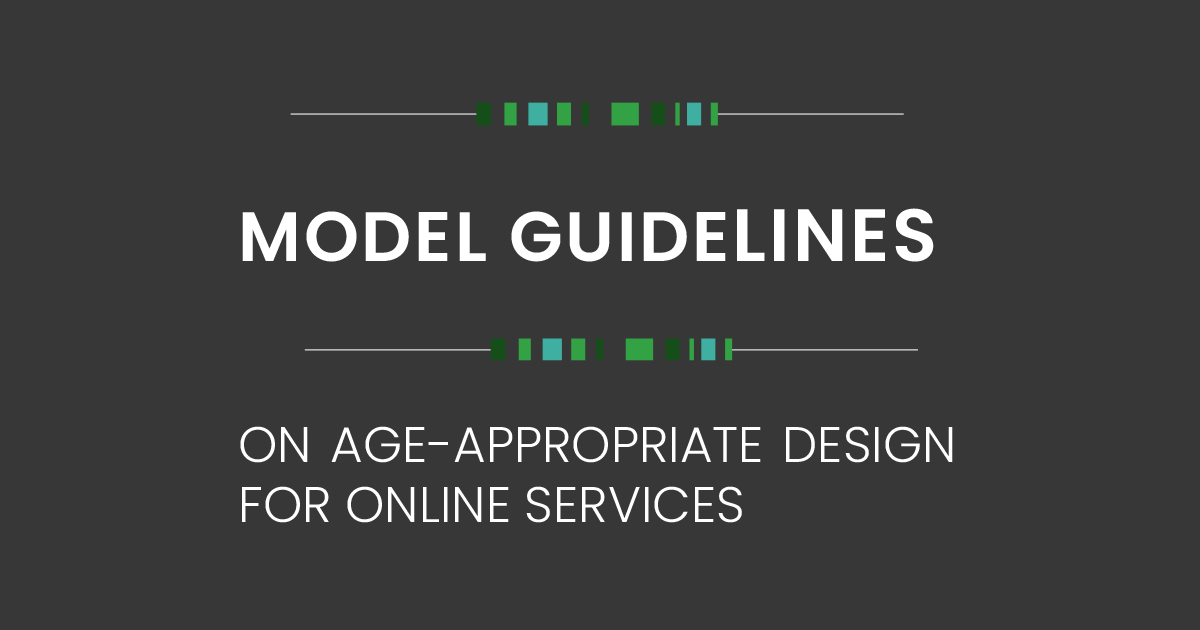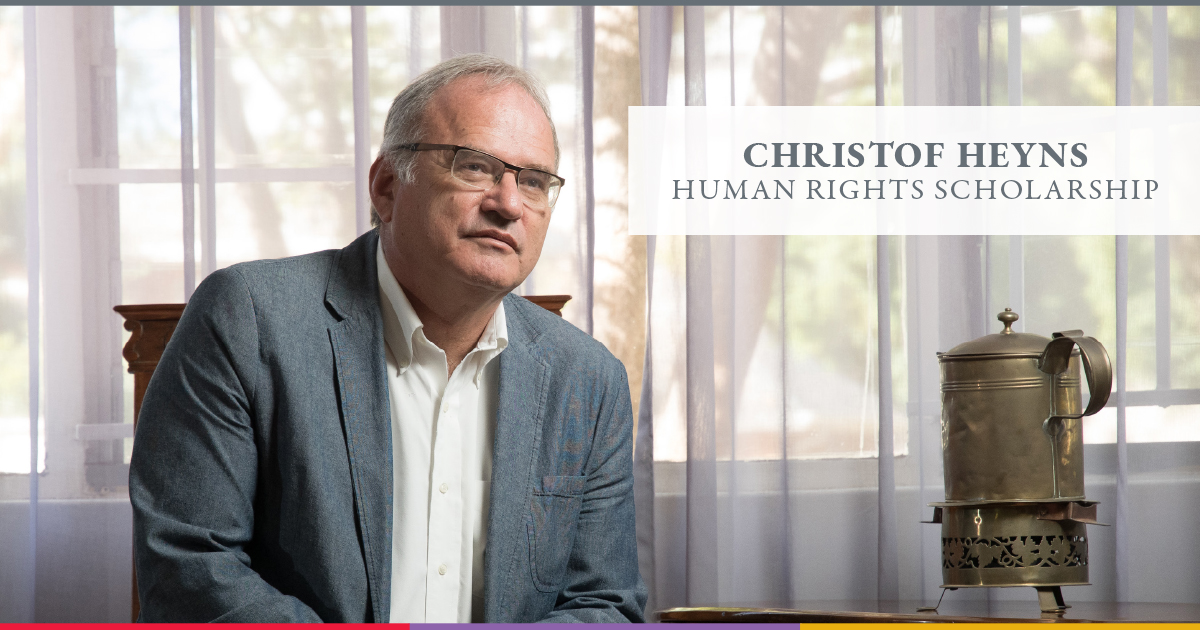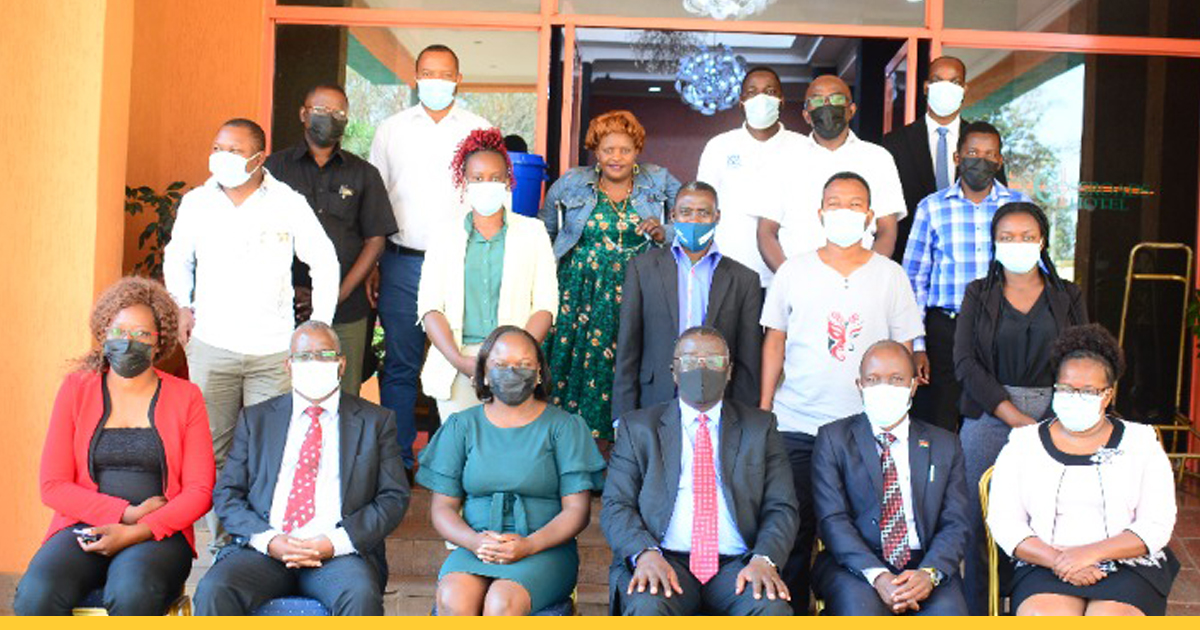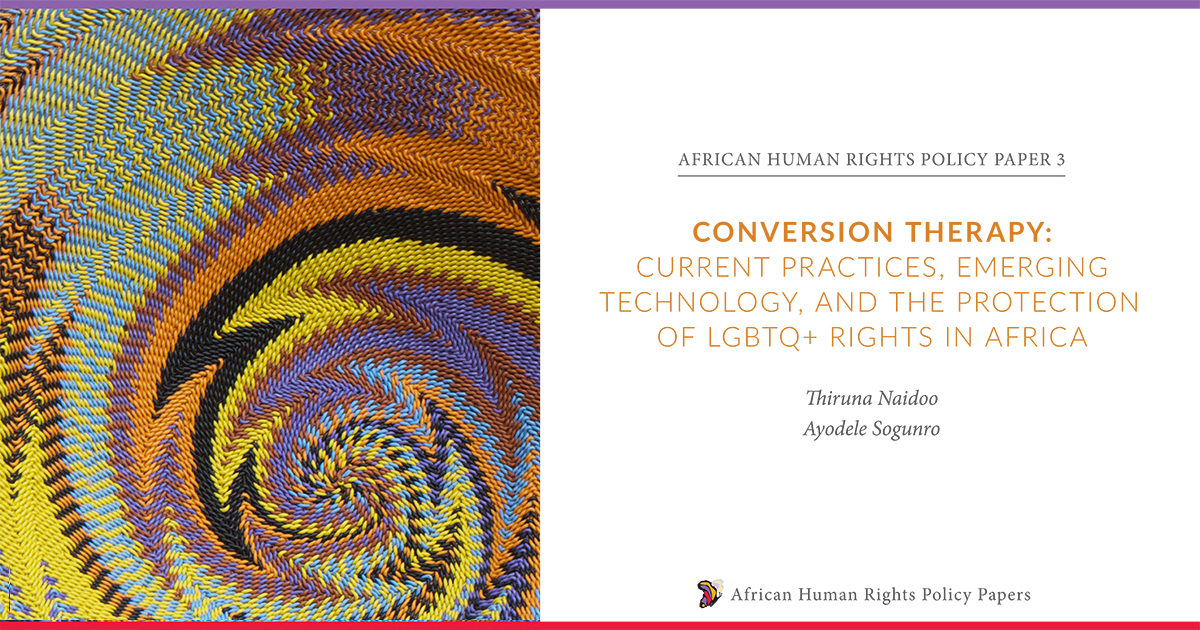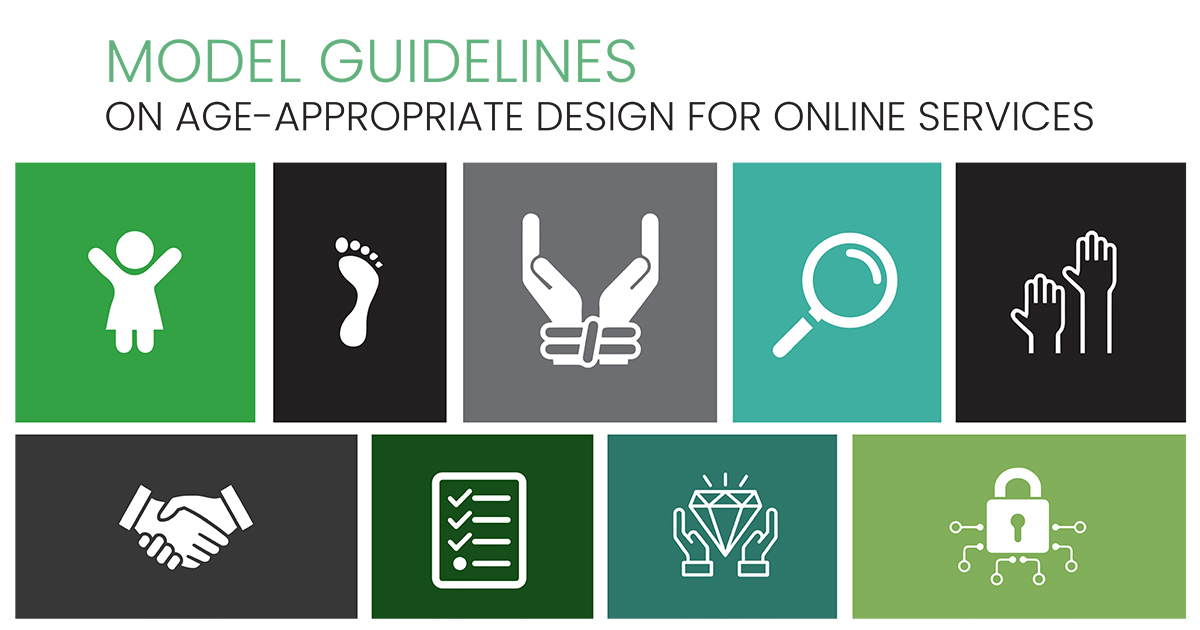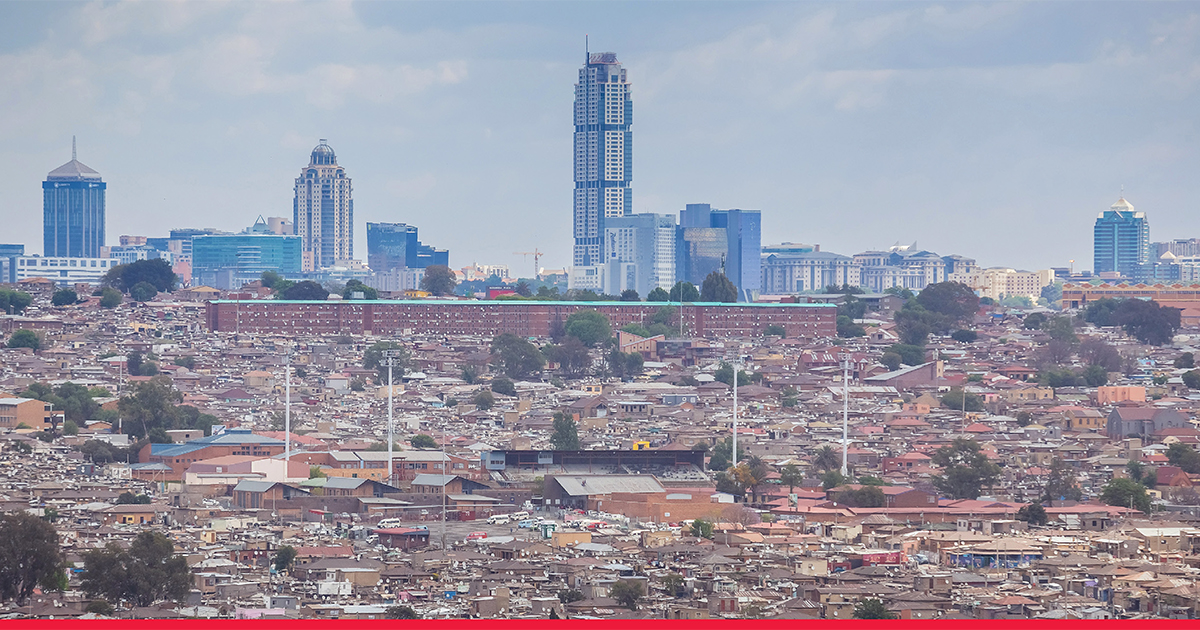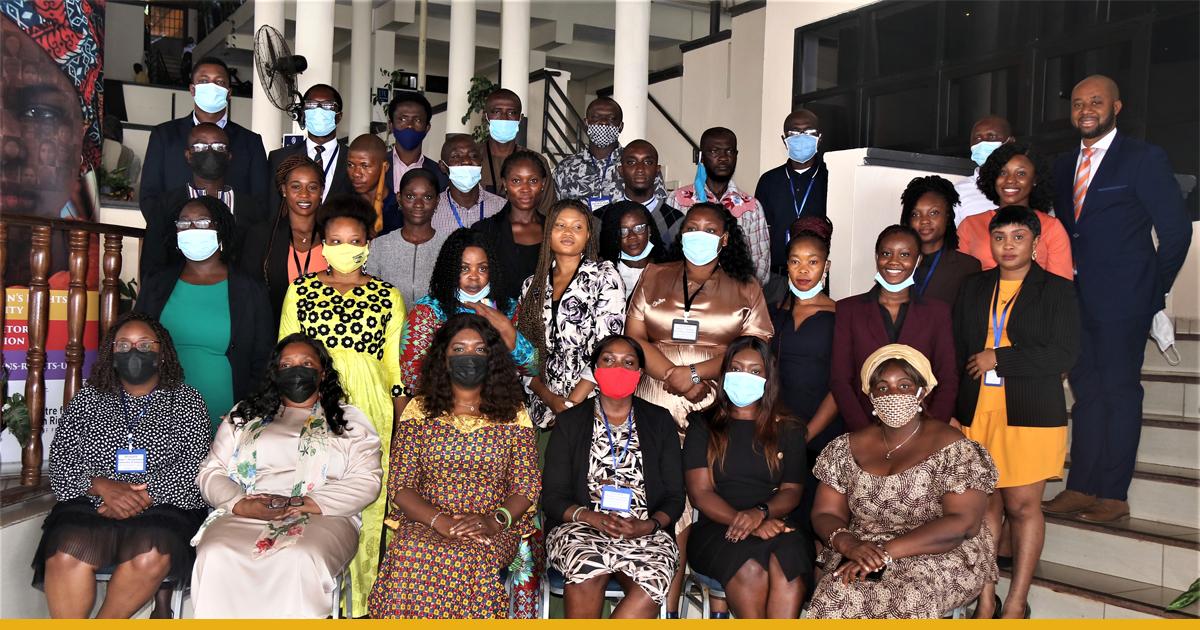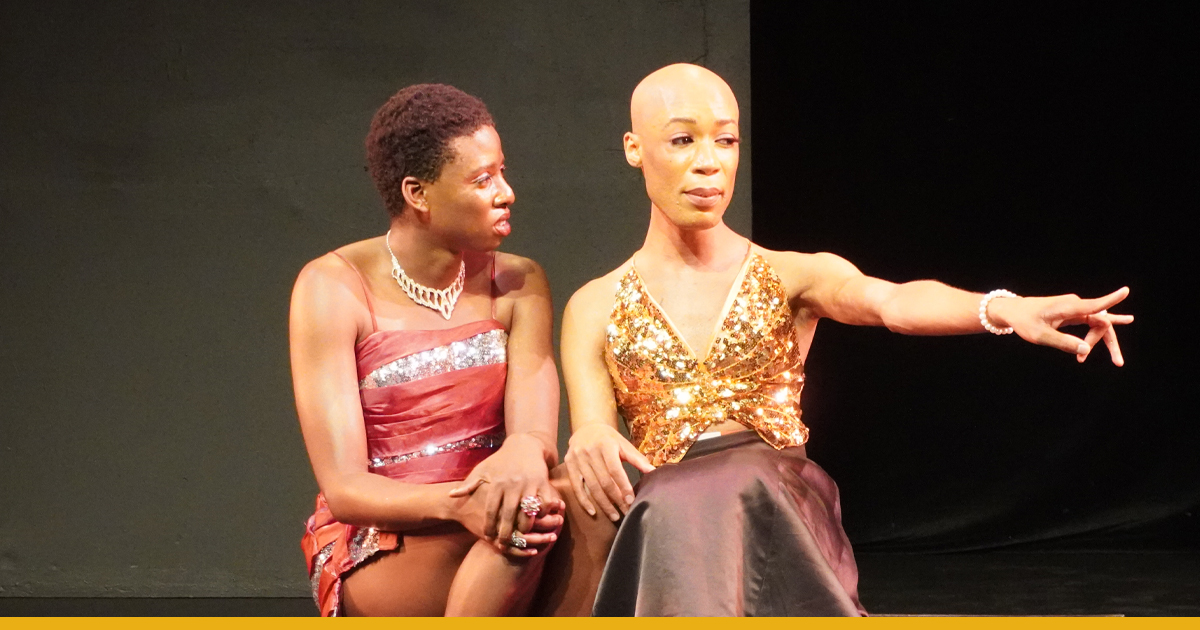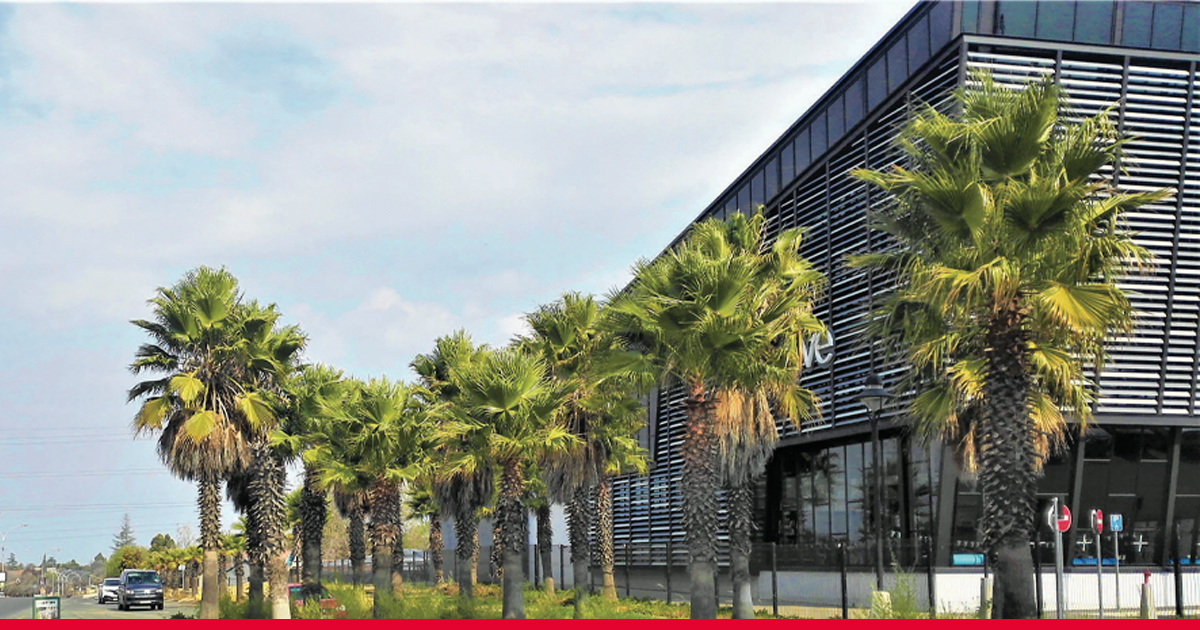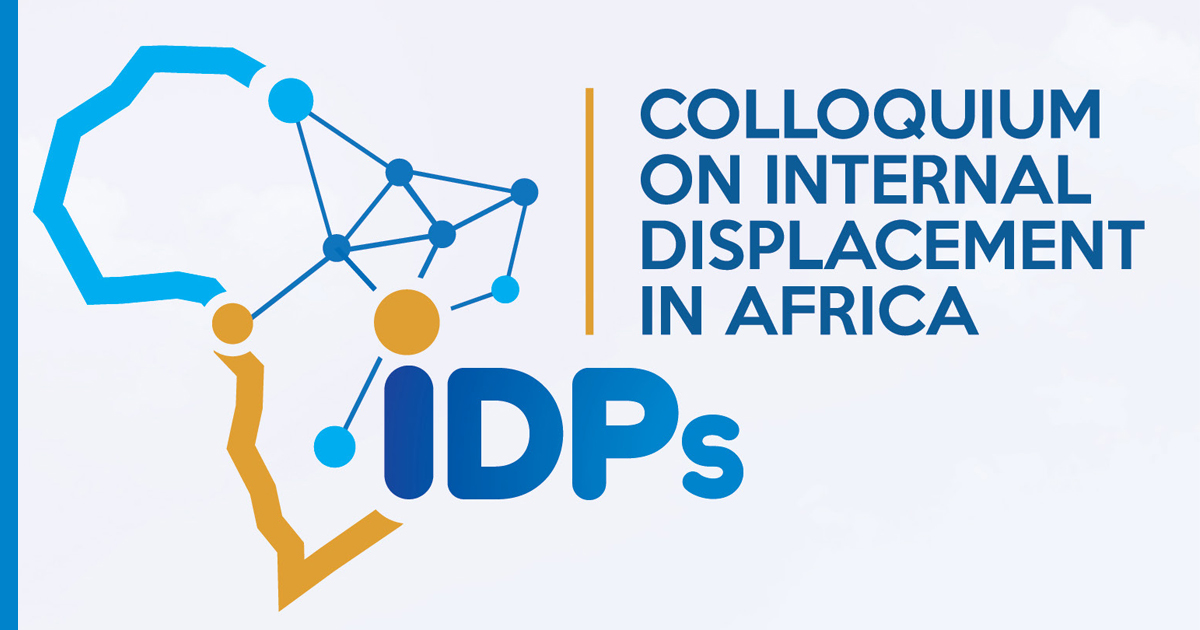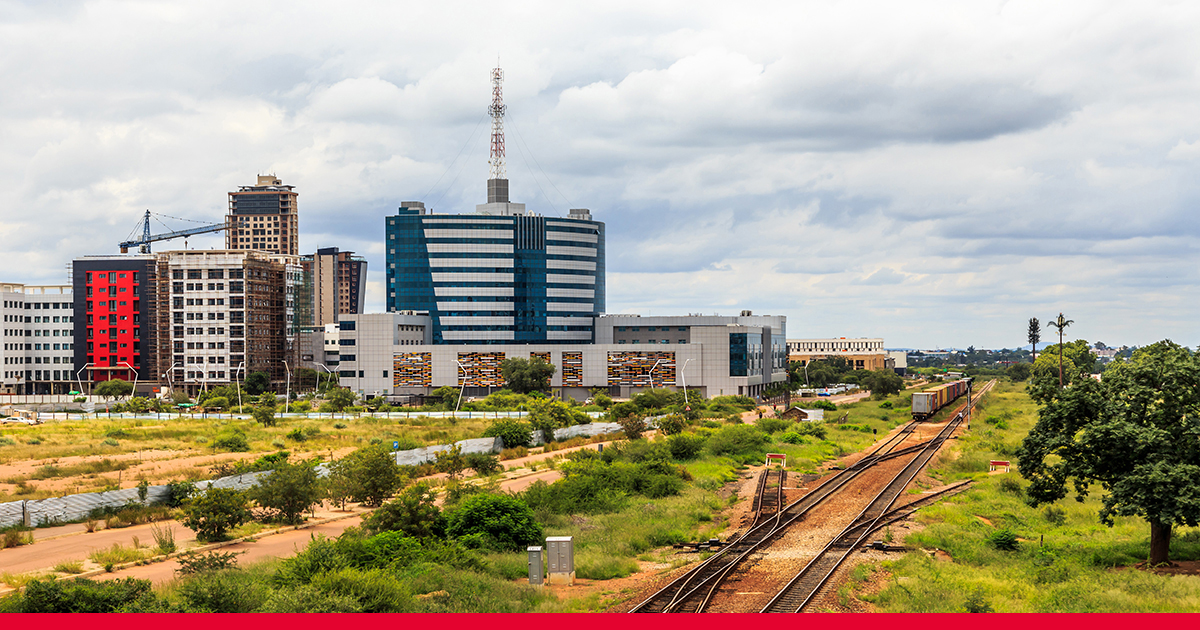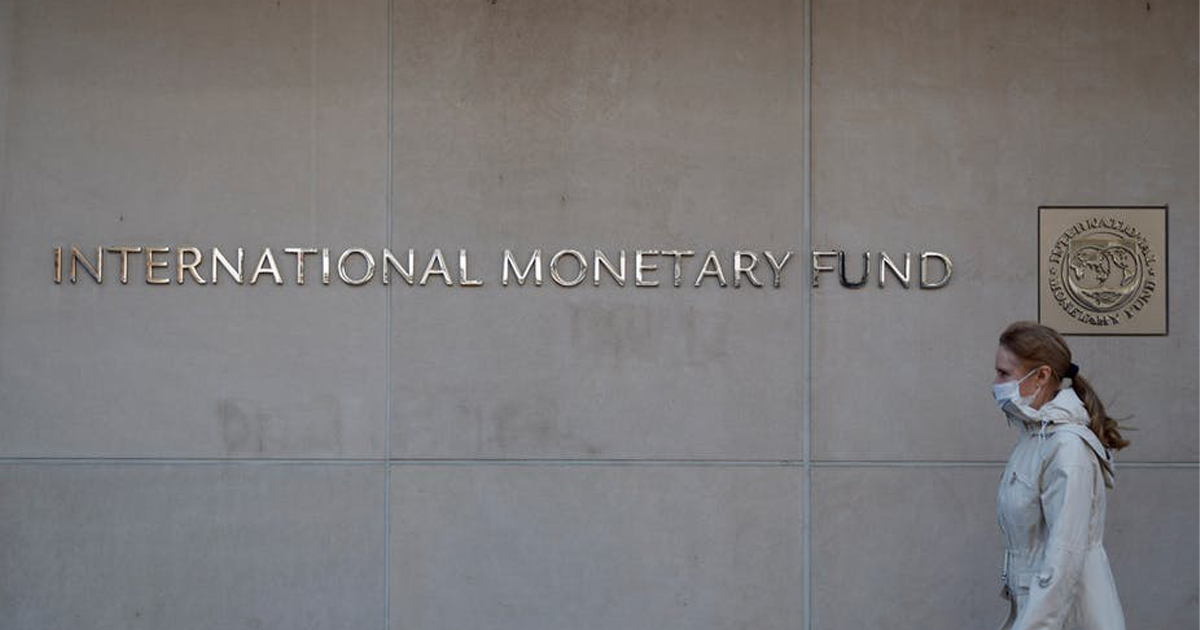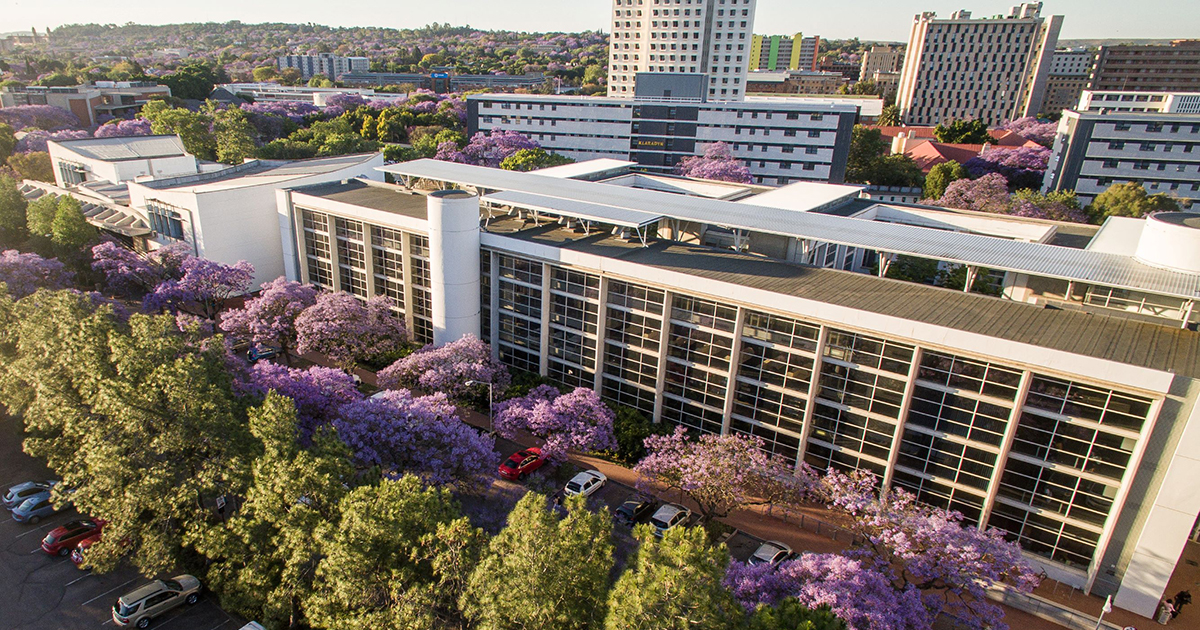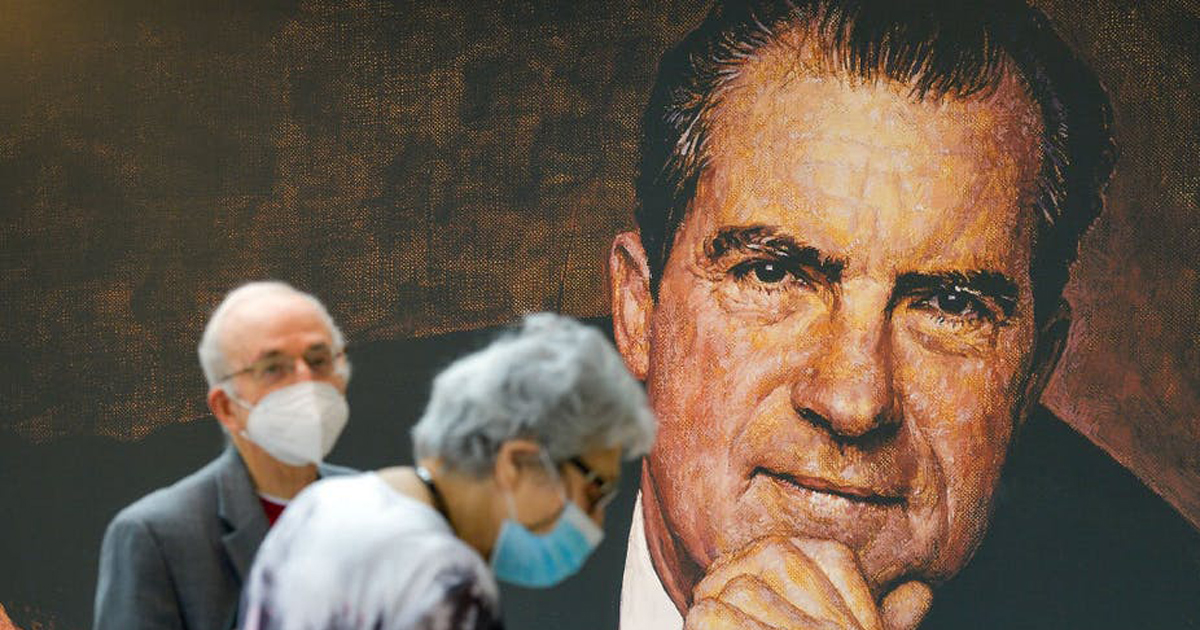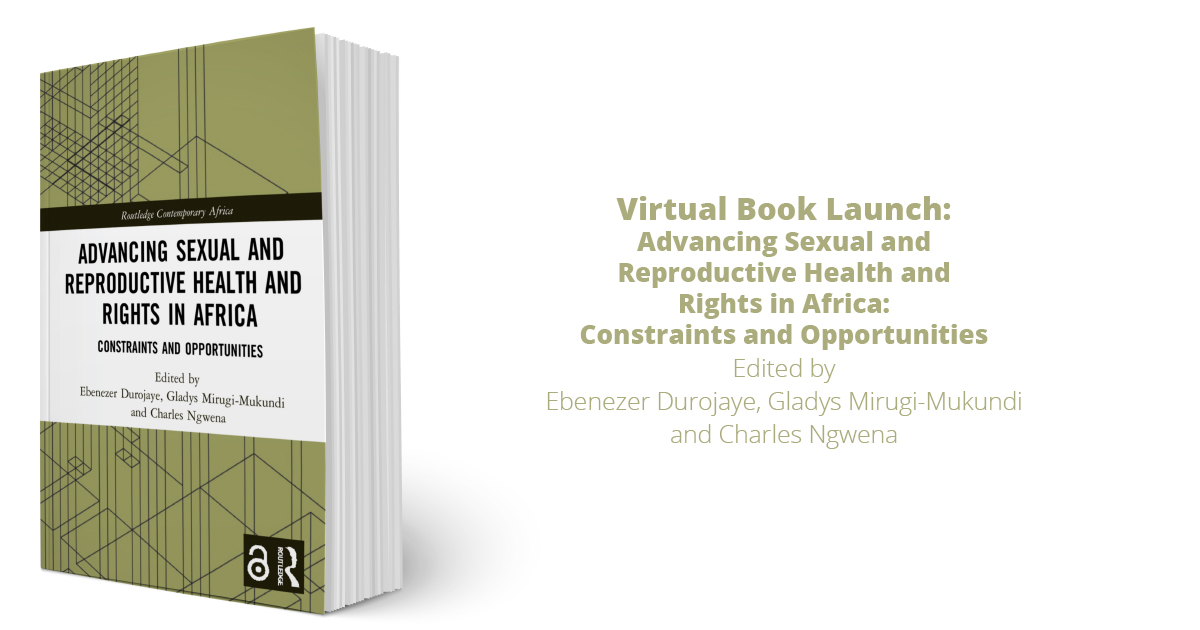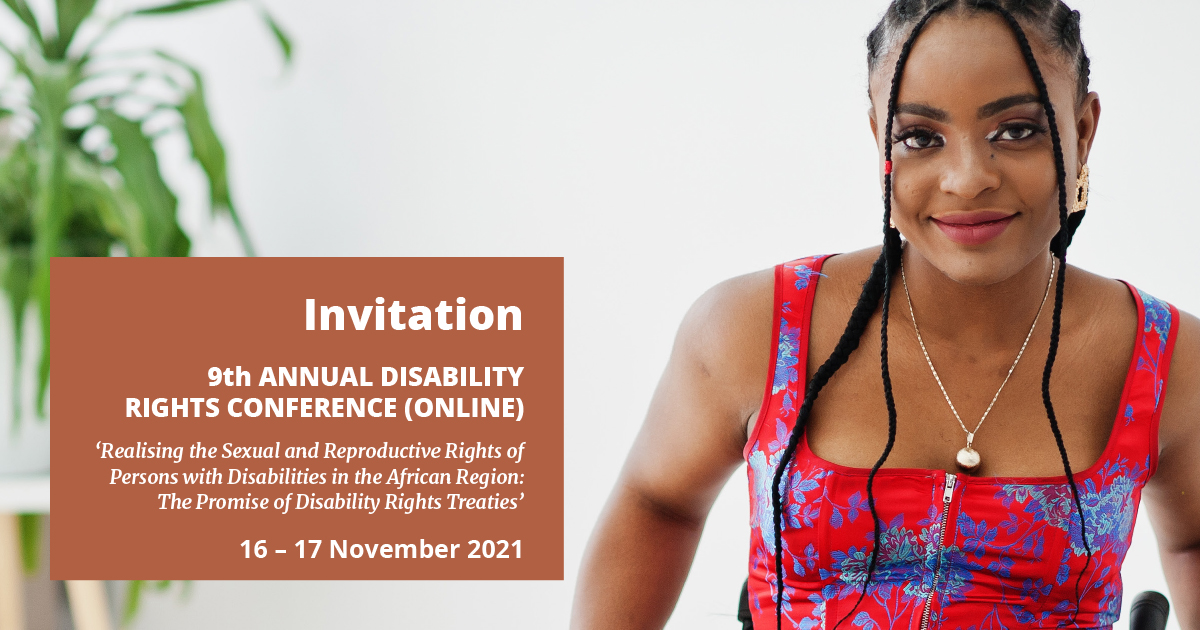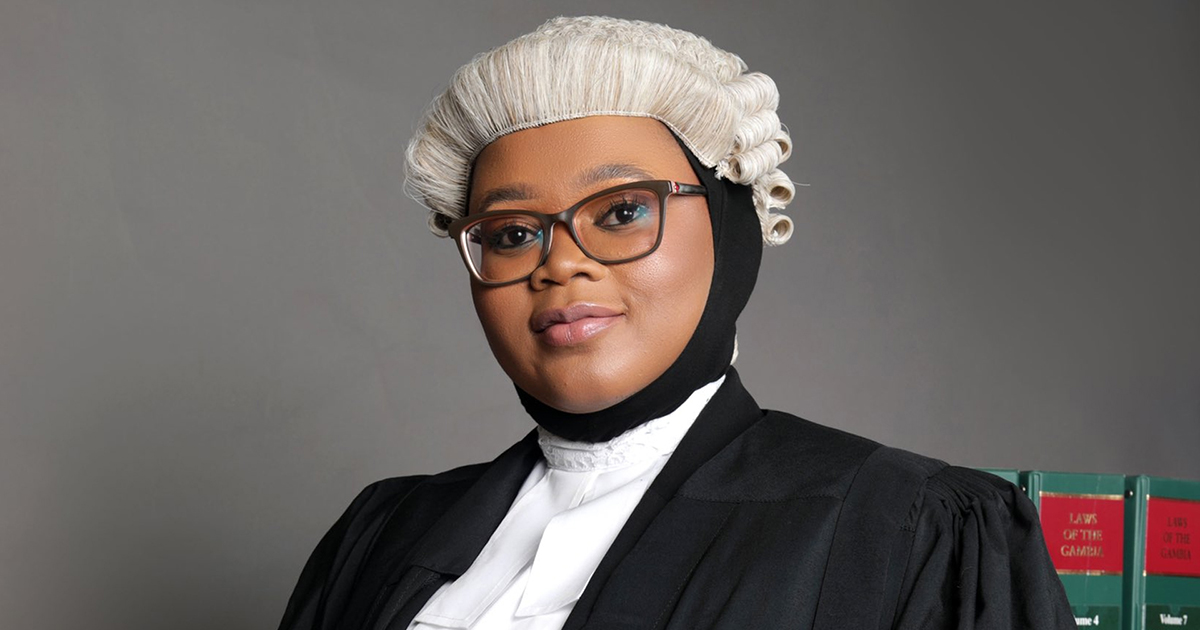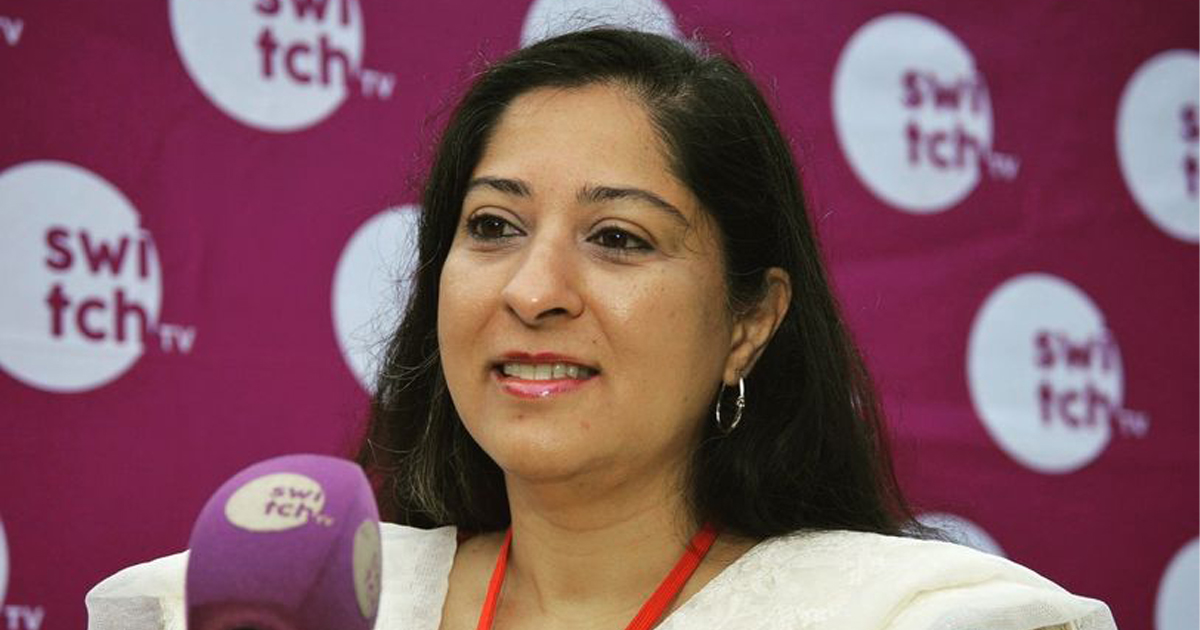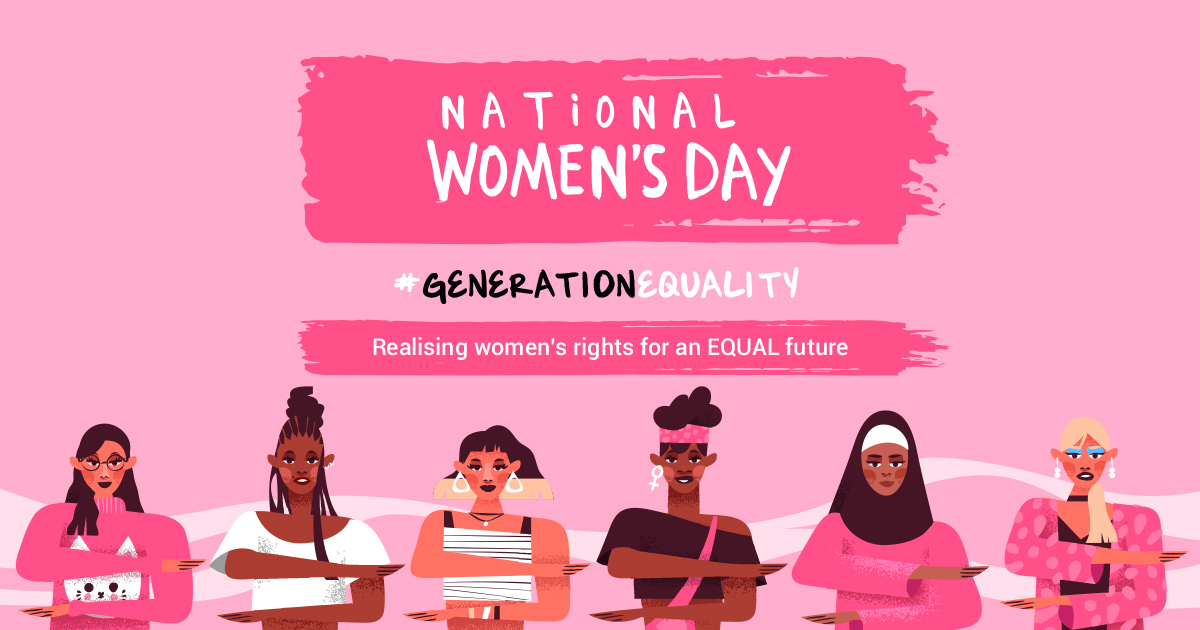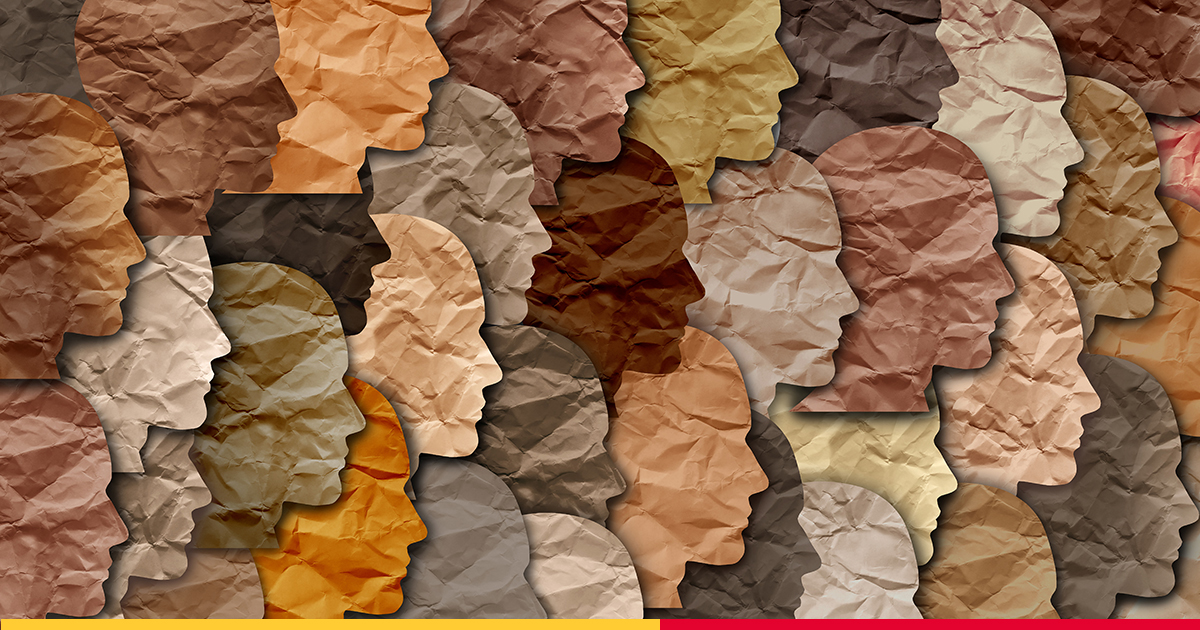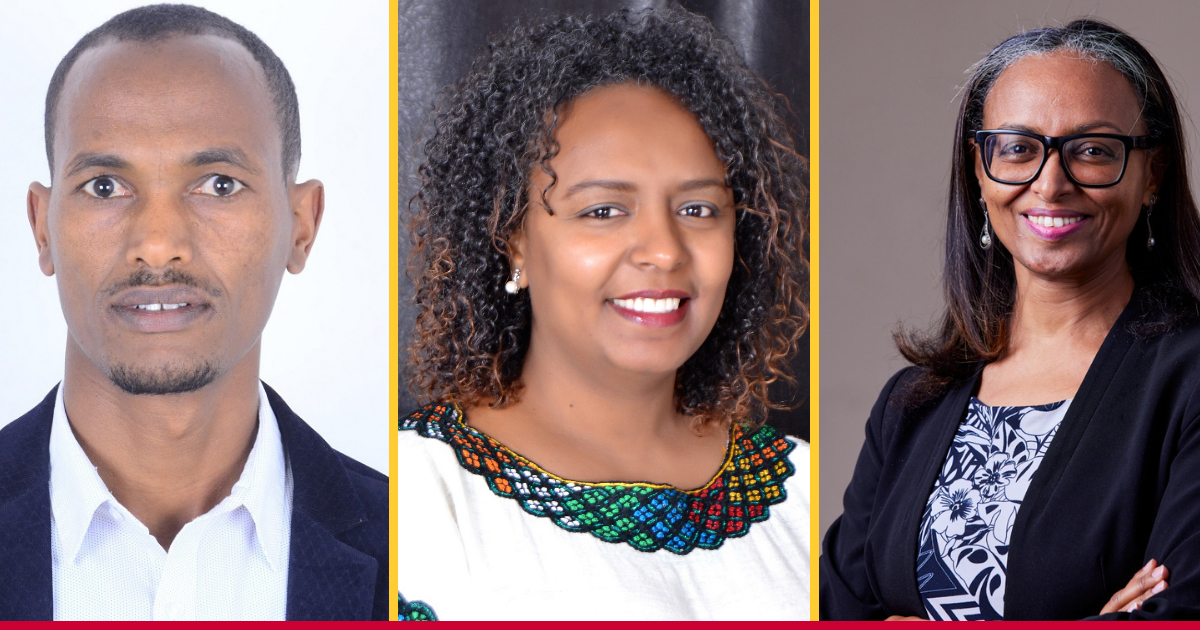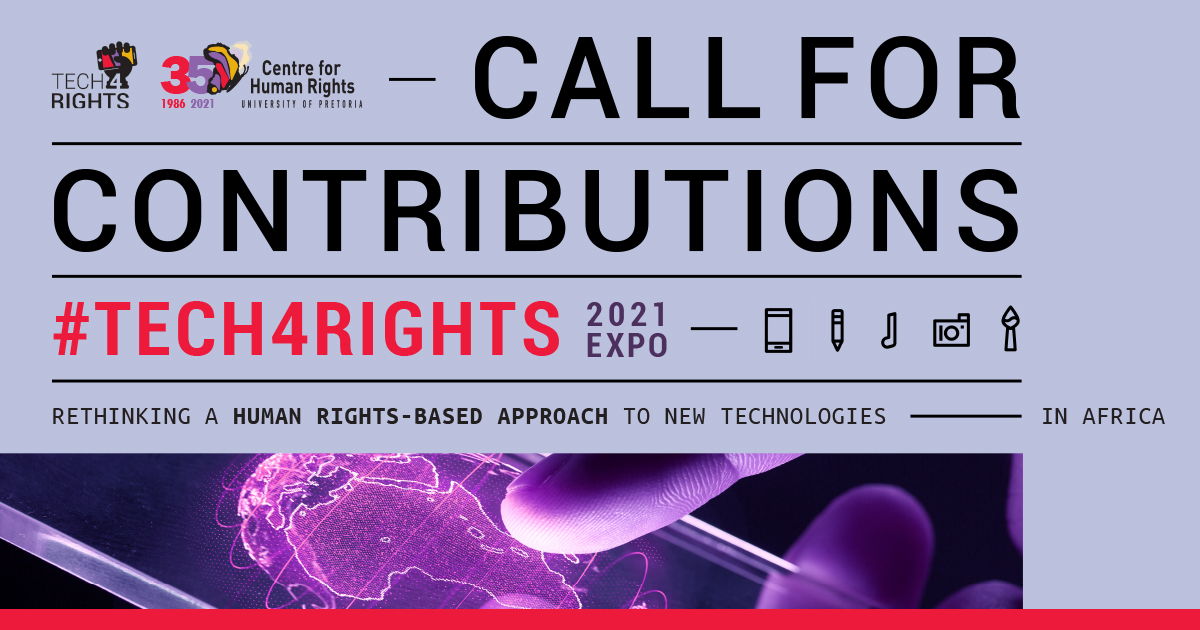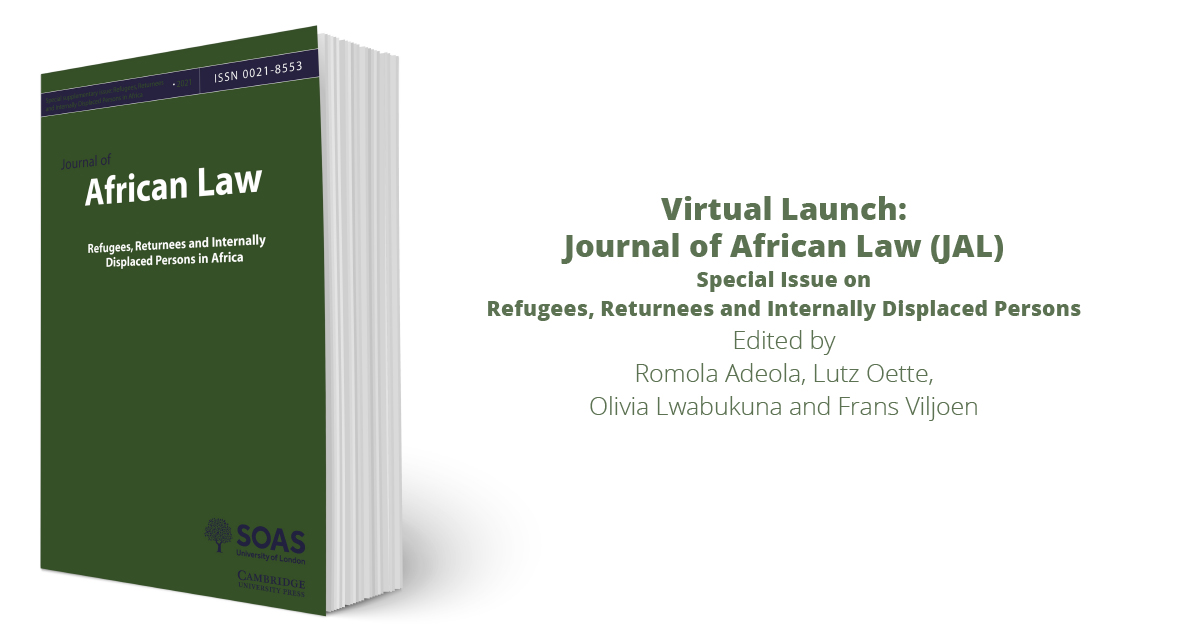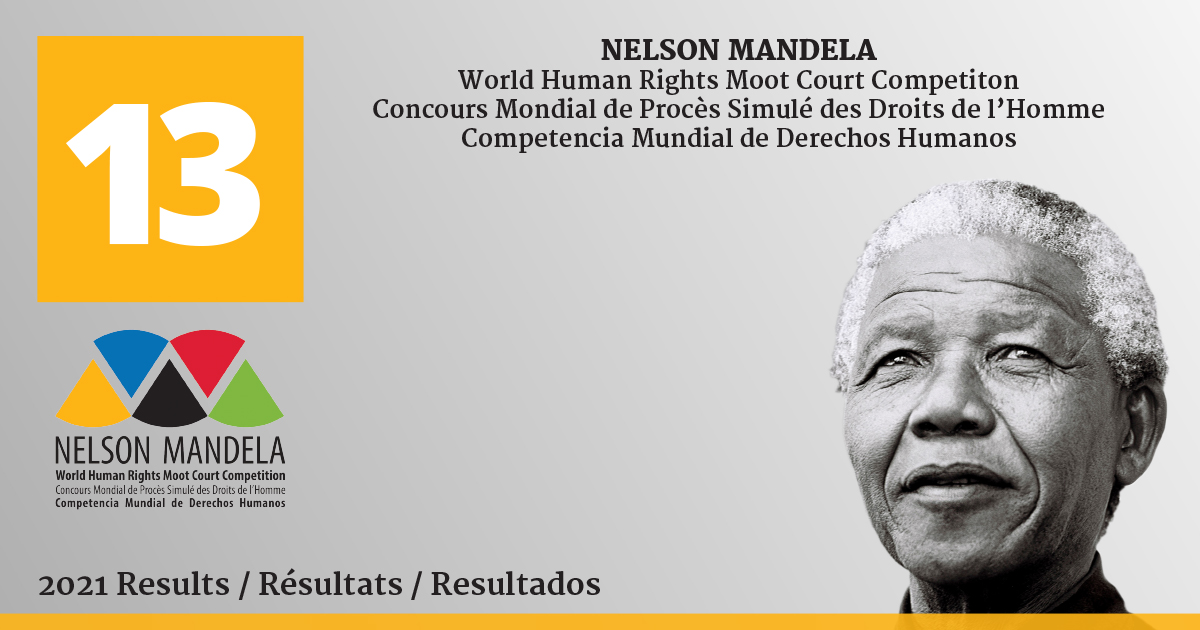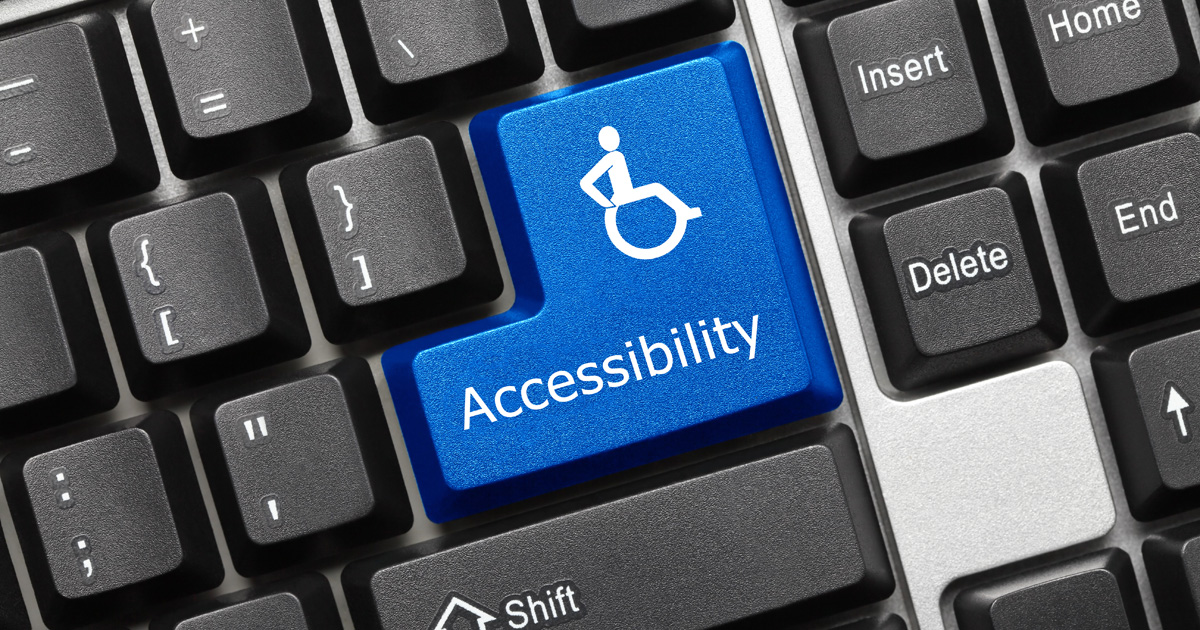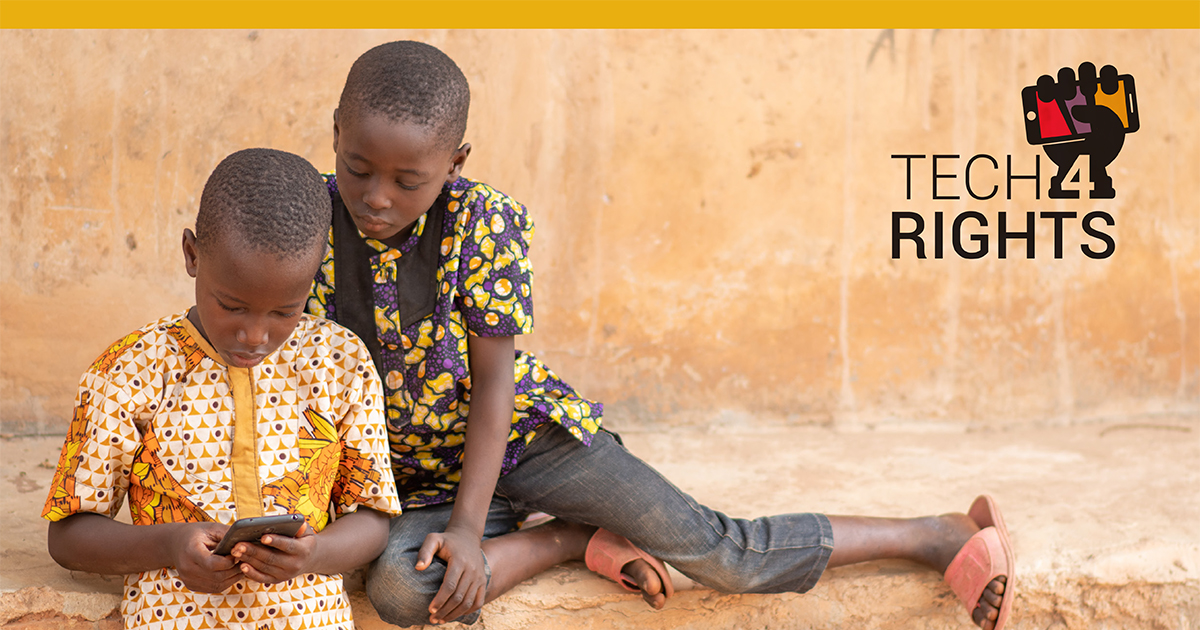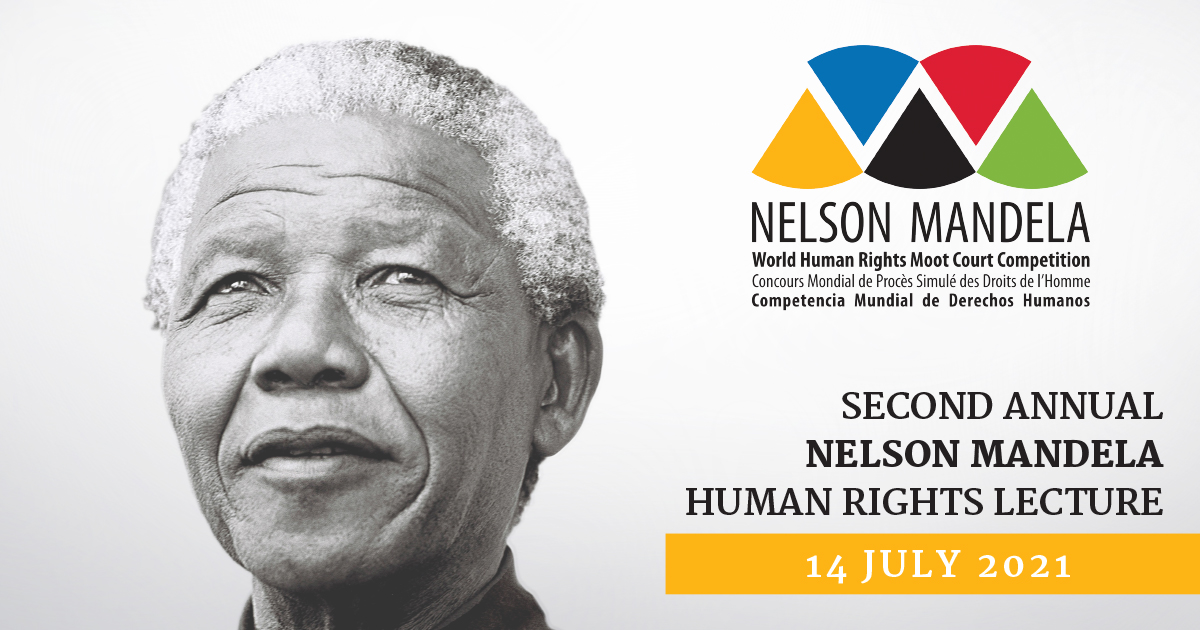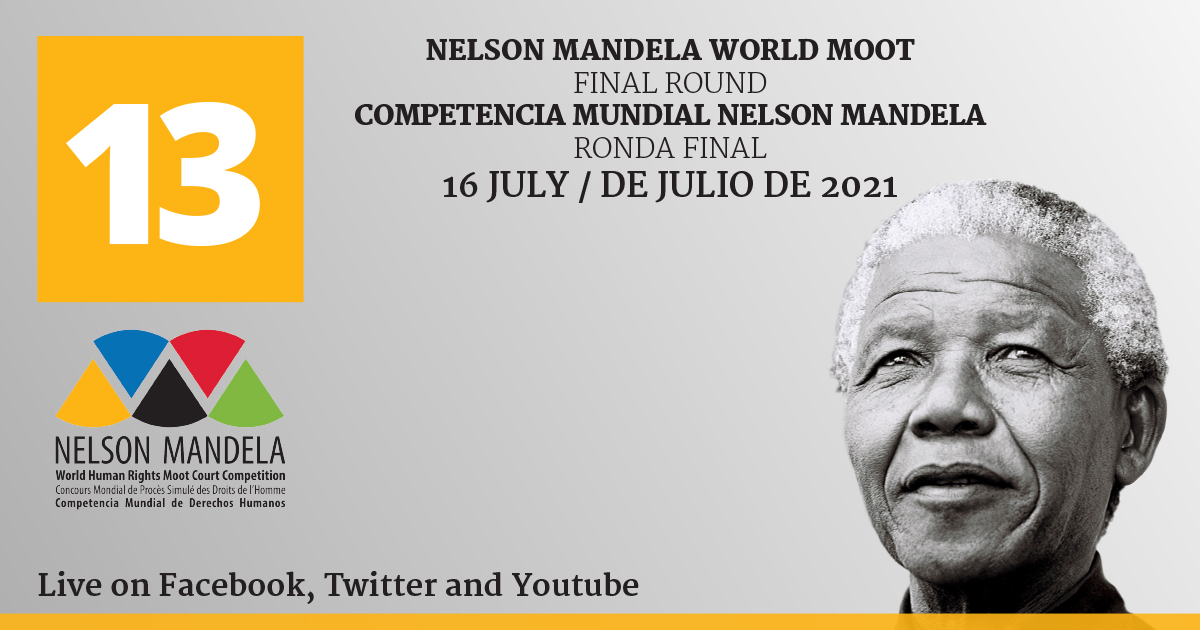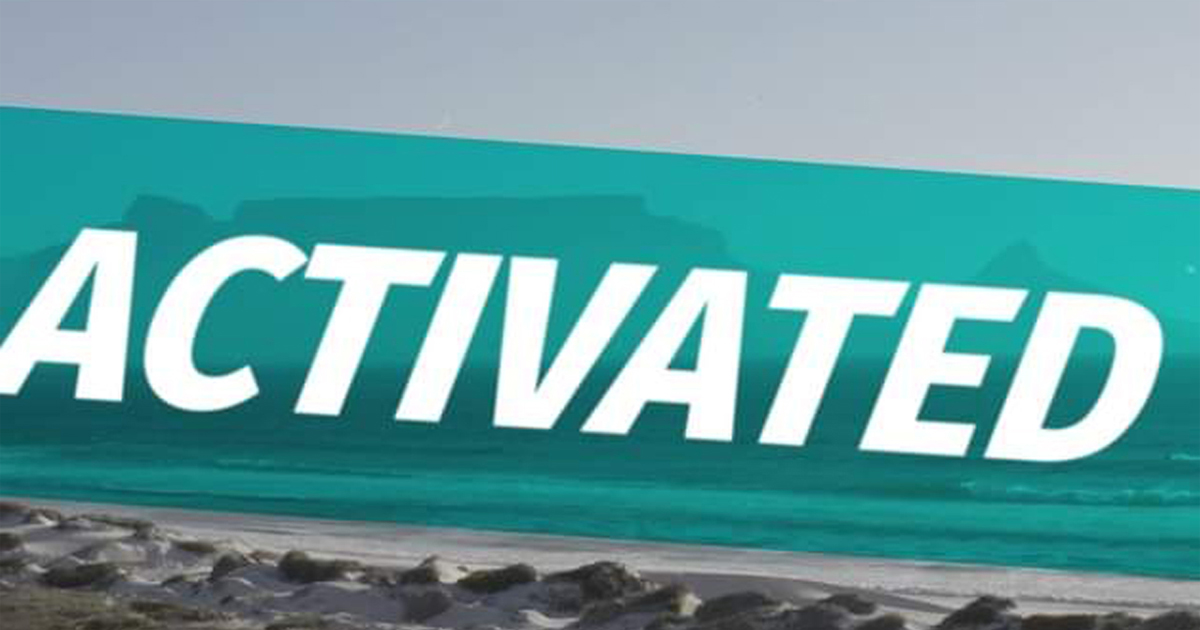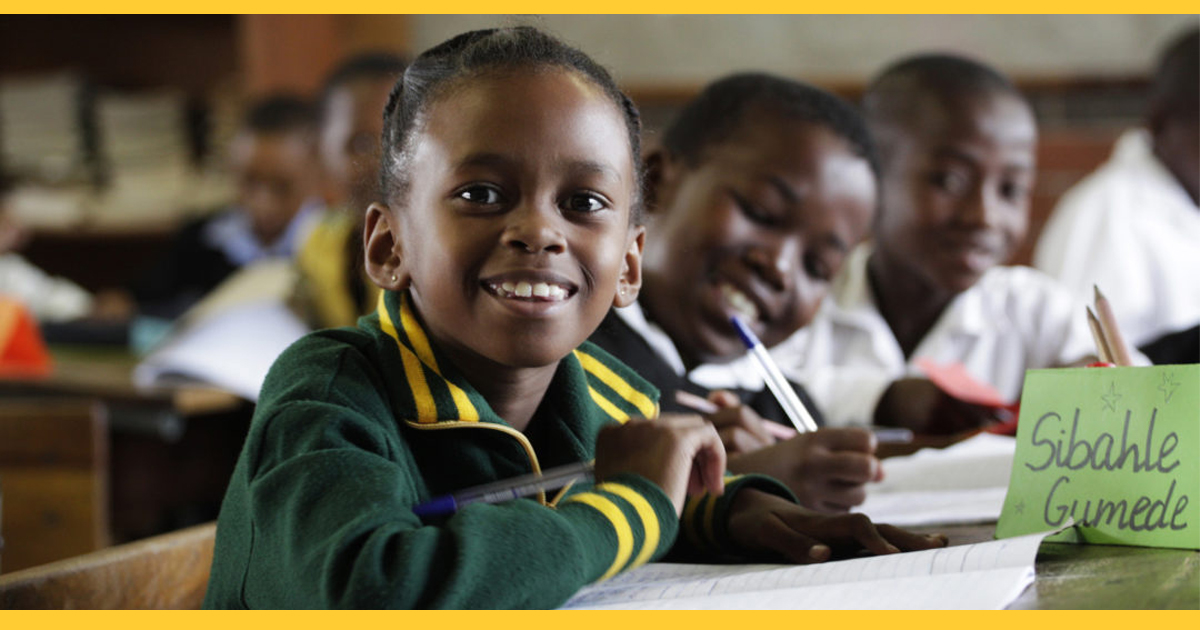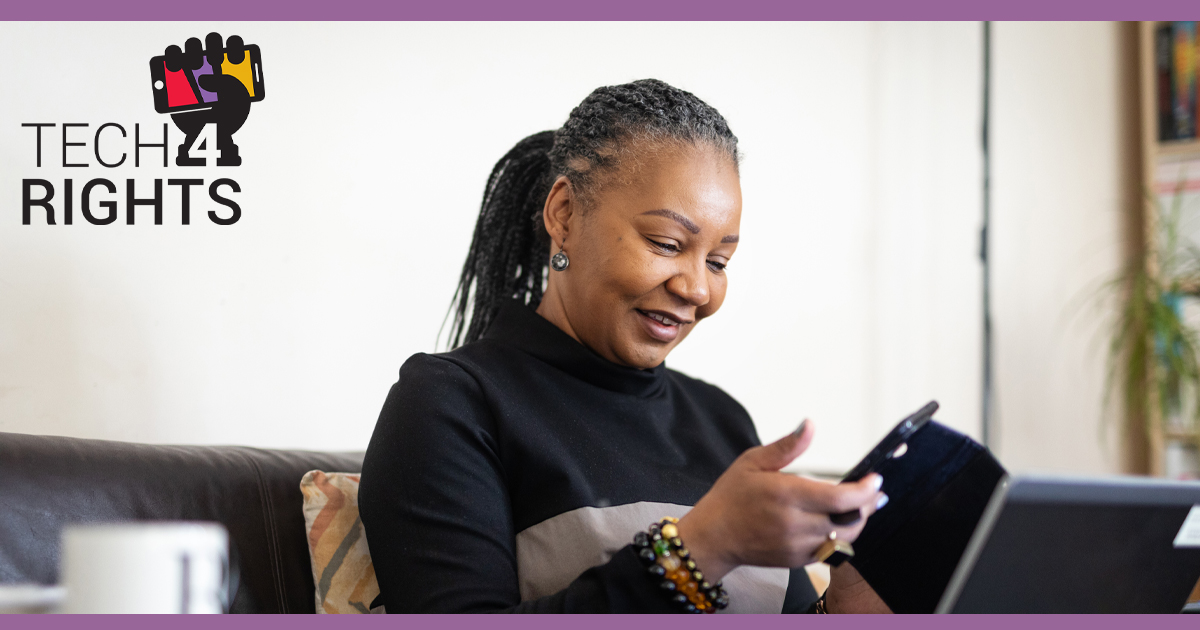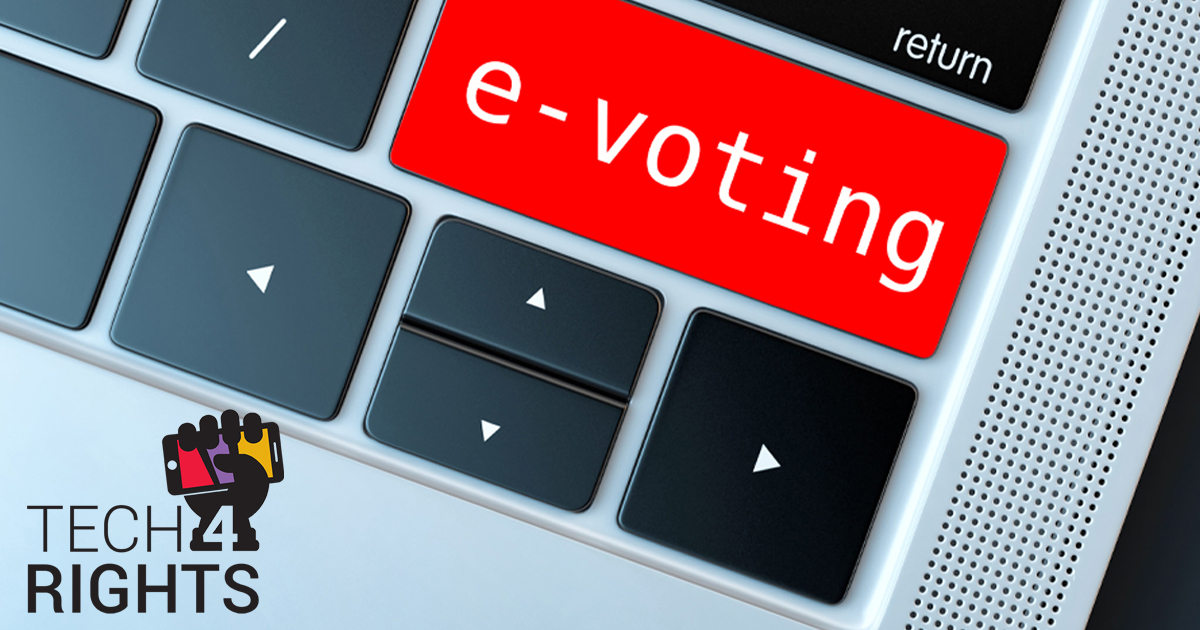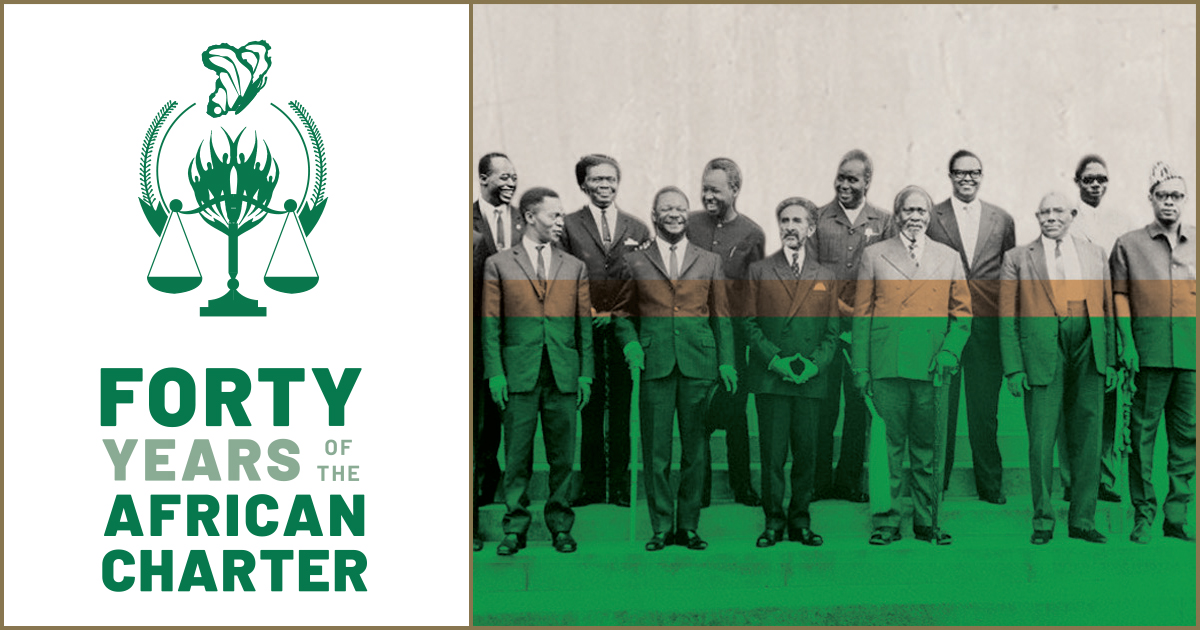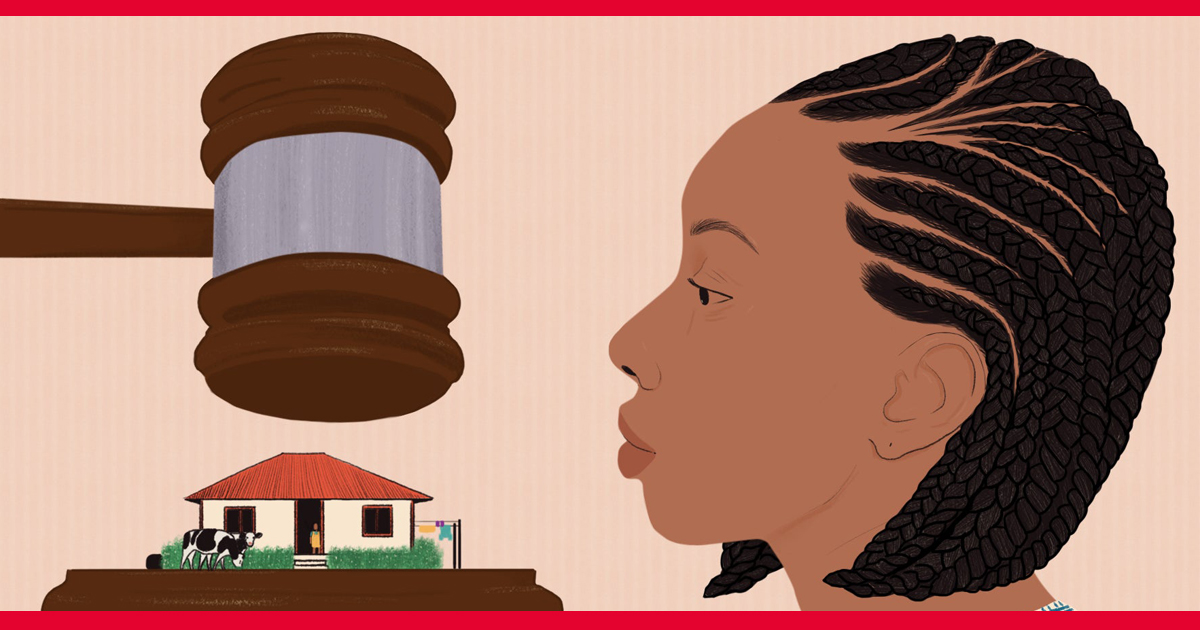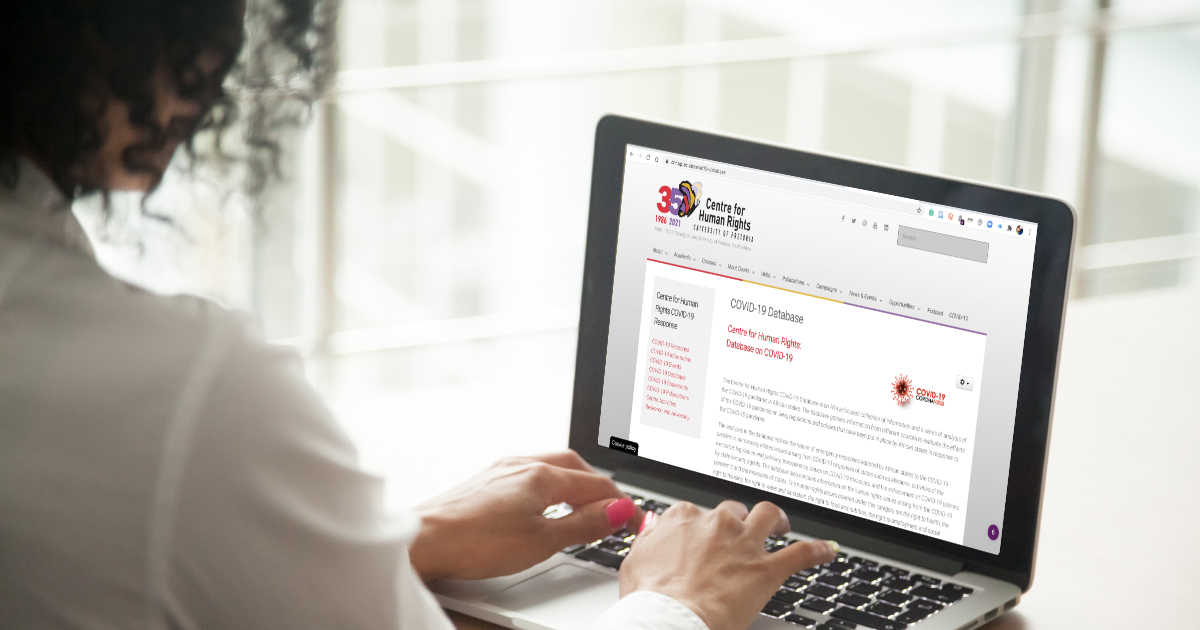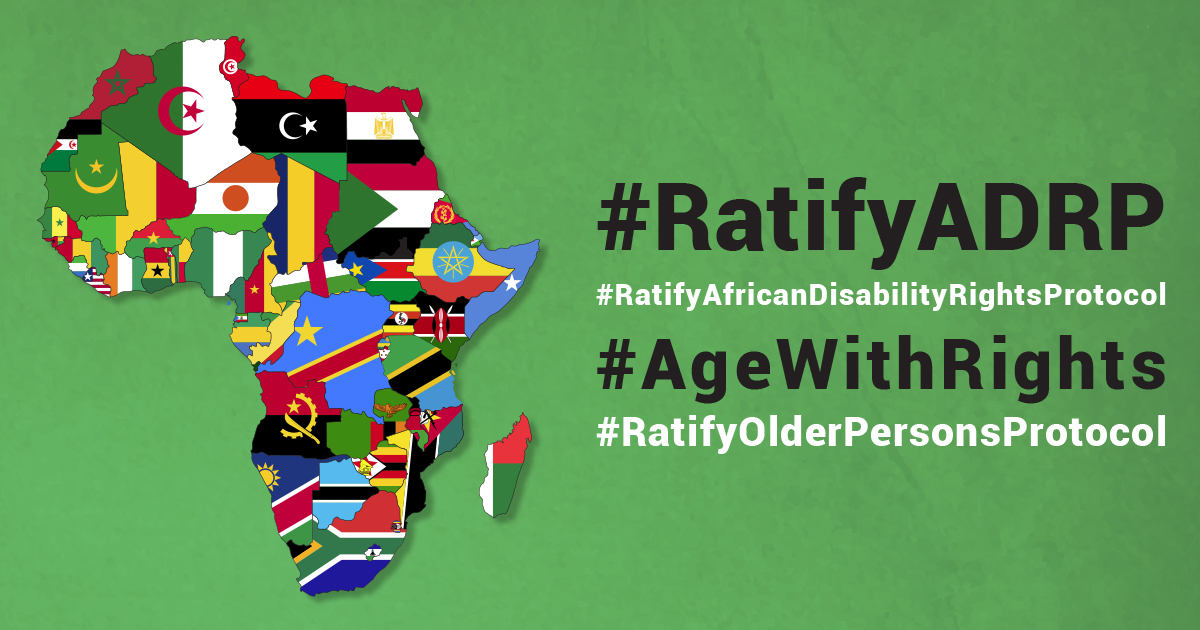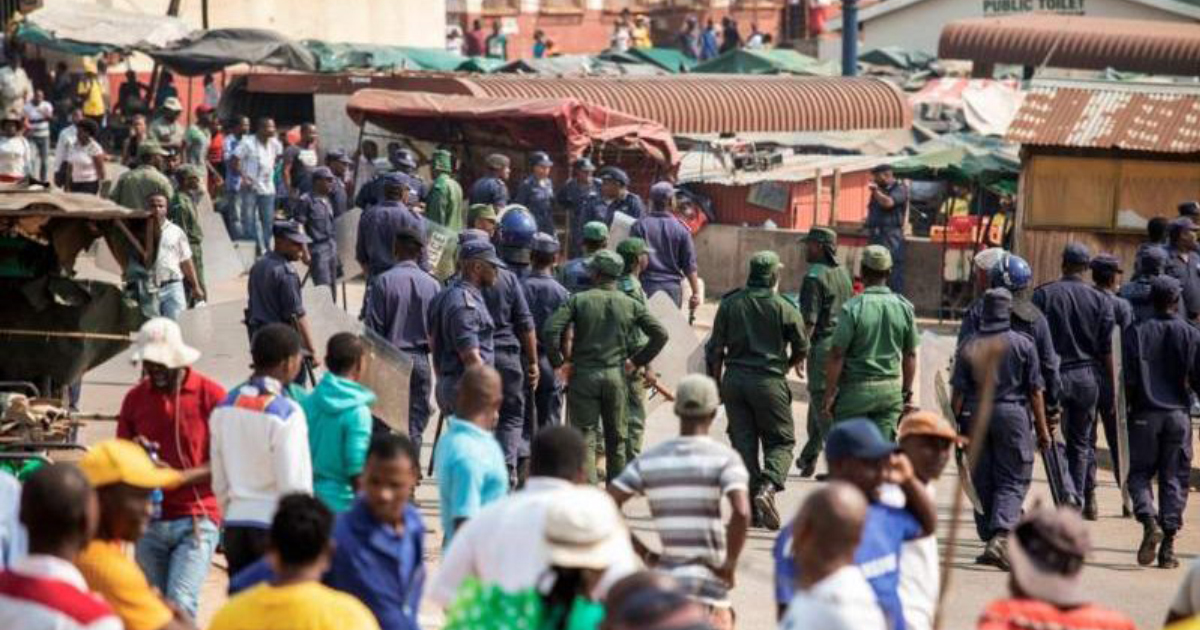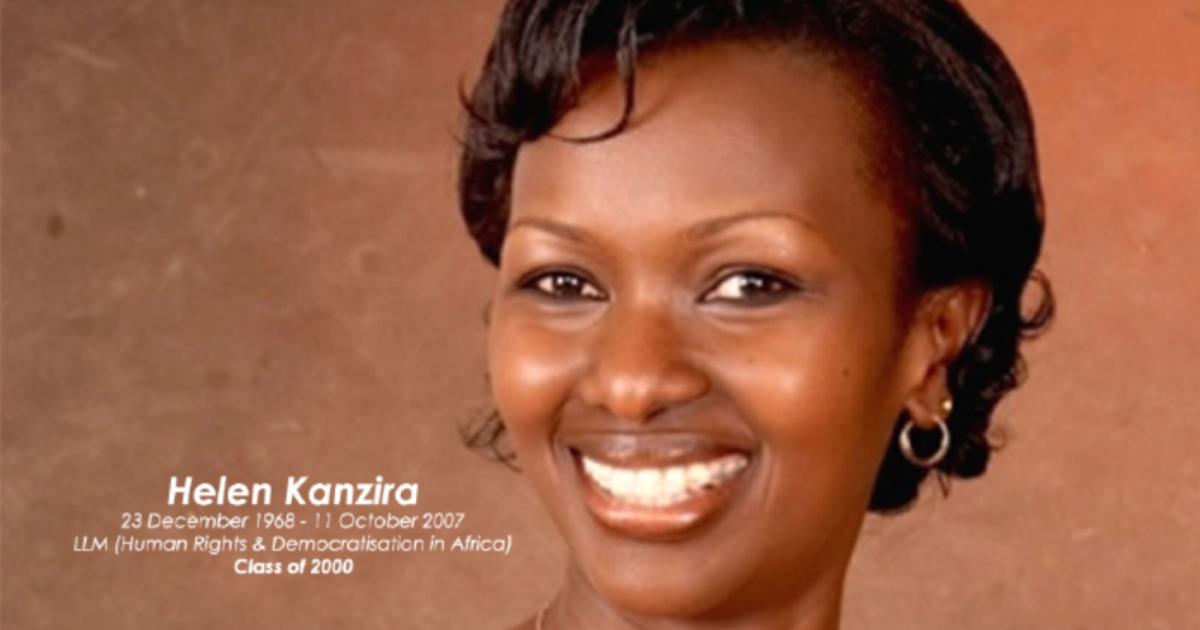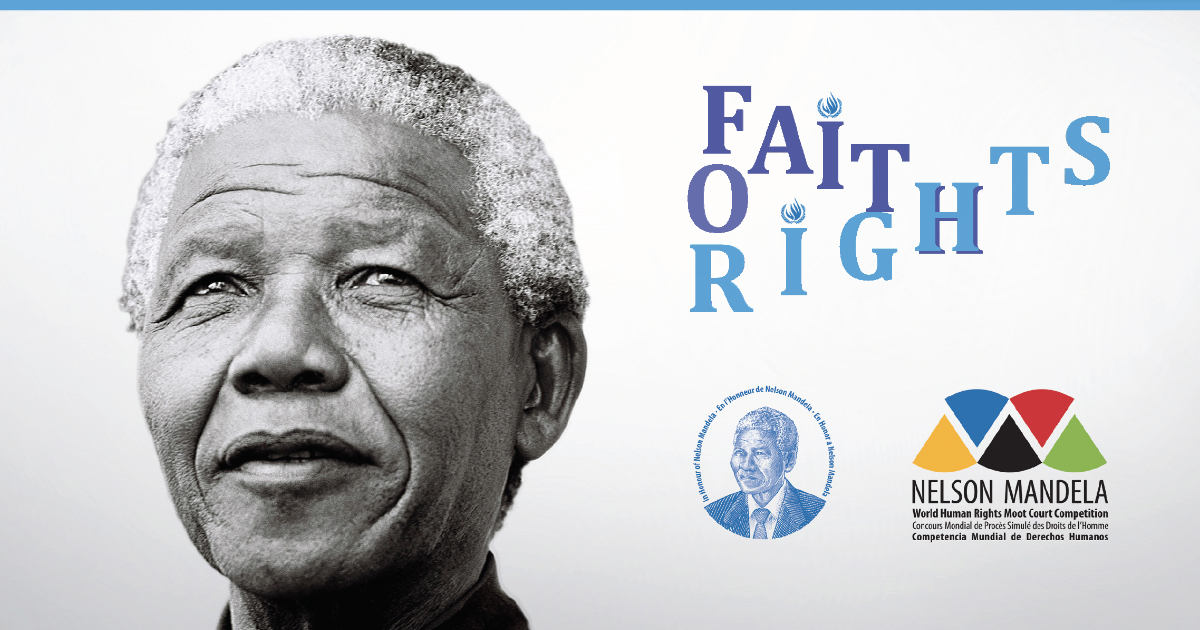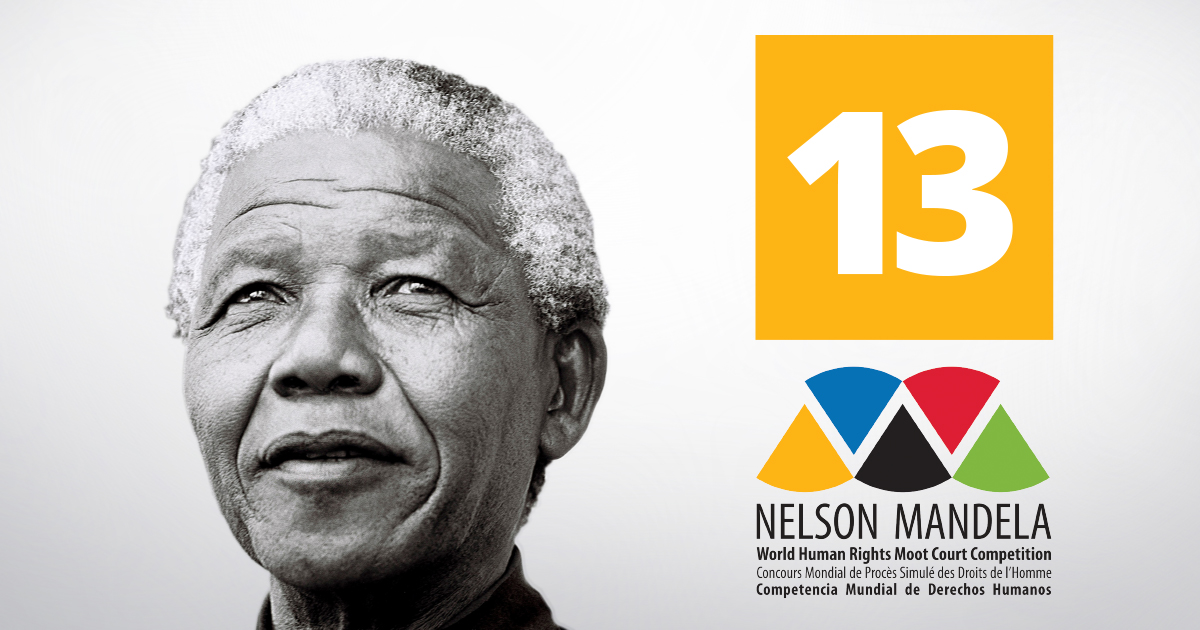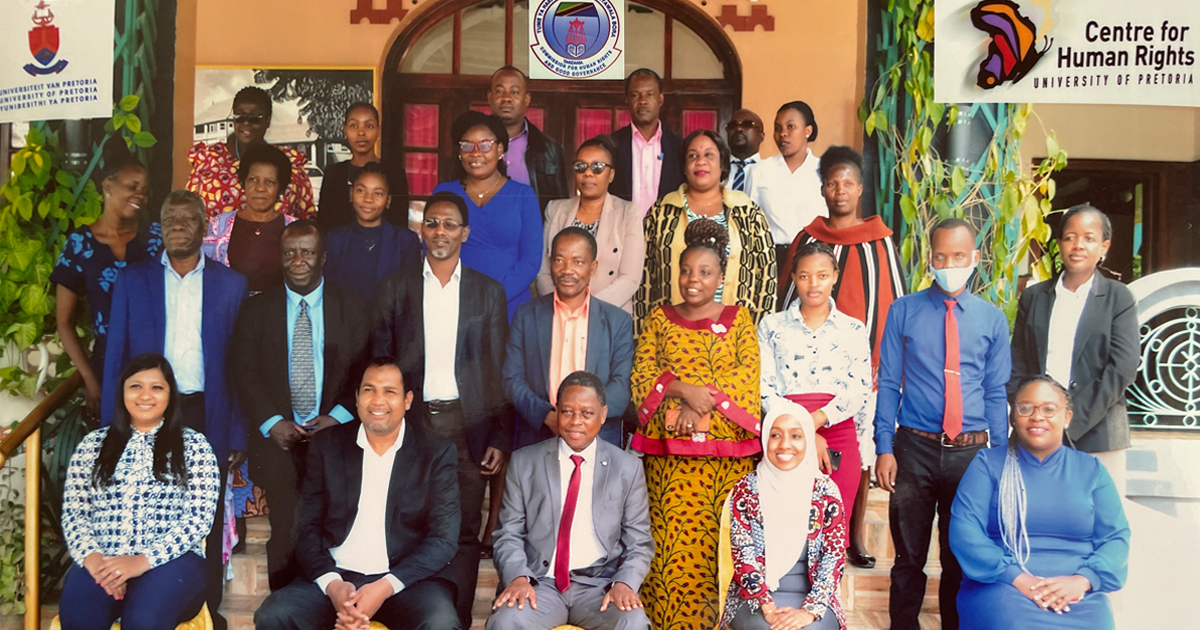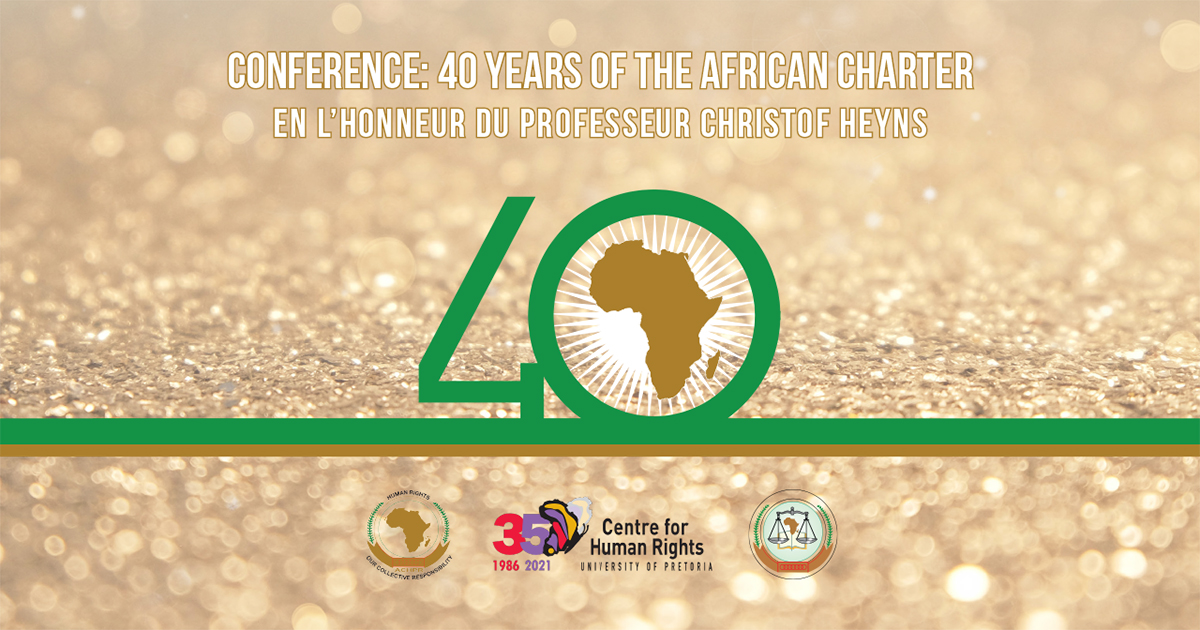- Details
The Sexual Orientation, Gender Identity and Expression, and Sex Characteristics (SOGIESC) Unit, Centre for Human Rights is presenting a webinar on Resolution 275 and its protection of lesbian, bisexual, and queer (LBQ) cis and trans women in Africa. The webinar will explore various challenges faced by the LBQ cis and trans women in Africa and how these challenges can be tackled using Resolution 275 of the African Commission on Human and Peoples’ Rights (African Commission). The webinar will also provide a space and an opportunity for dialogue and education for the community on the African human rights system.
- Details
In remembrance of the late Professor Christof Heyns, the Centre for Human Rights, Faculty of Law, University of Pretoria, held a tree-planting ceremony on 15 November 2021. Copies of a memorial publication, containing a collection of tributes to Christof, Christof Heyns: In memoriam 1959-2021, were also handed to family and friends.
- Details
The Pretoria University Law Press (PULP) invites you to the virtual book launch of the French translation of Albie Sachs’ book The Strange Alchemy of Life and Law (originally published by Oxford University Press) L’étrange alchimie de la vie et de la loi, translated and commented by Christine Schurmans
- Details
Climate change is a devilishly complex challenge that affects all aspects of our lives. It affects weather patterns, biodiversity, access to and sustainability of water and land resources, air pollution, inequality, employment, industrial production, distribution and consumption, and migration patterns.
- Details
The Pretoria University Law Press (PULP) is proud to announce the winner of the first recipient of the Christof Heyns Memorial Thesis Award. The award for the best thesis by an African doctoral candidate completed in 2020, goes to Dr Tabeth Lynn Masengu.
- Details
The Centre for Human Rights, Faculty of Law, University of Pretoria (the Centre) in collaboration with the Department of Women, Youth and Persons with Disabilities and the Department of Justice and Constitutional Development hosted a capacity building workshop on state compliance with reporting obligations under the African Charter on Human and Peoples’ Rights (African Charter) and the Protocol to the African Charter on Human and Peoples’ Rights on the Rights of Women in Africa (Maputo Protocol). The workshop took place from 9 to 10 November 2021 and participants attended in a hybrid format. Some participants attended in person in Hatfield, Pretoria while others attended virtually from different provinces which include the Eastern Cape and Western Cape.
- Details
The Centre for Human Rights, Faculty of Law, University of Pretoria, in partnership with the Ford Foundation, cordially invites you to participate in a webinar launching the reports on the right of persons with disabilities to participate in political and public life in Namibia and Malawi.
- Details
The International Development Law Unit cordially invites you to a lecture on 'The multiplication of proceedings and of courts and tribunals and the tools at disposal to address the risks attached to this multiplication phenomenon' by Prof Laurence Boisson de Chazournes.
- Details
The Centre for Human Rights, University of Pretoria, is seeking a Communications and Advocacy Manager. The deadline for applications is 23 November 2021
- Details
In view of the disparity of outcomes in judicial reasoning across the continent on SOGIE and ESCR, this symposium will bring together judges, lawyers, researchers and human rights defenders from across Africa to share ideas on good practices and lessons learned when dealing with these cases. The Symposium will bring together judges, lawyers, human rights defenders and researchers from across Africa to share ideas on good practices on the adjudication of both SOGIE and ESCR related cases on the African continent. Presenters and participants will have the opportunity to review and comment on perspectives on selected SOGIE and ESCR cases and discuss national and regional challenges in these areas in order to understand, advance and grow a progressive jurisprudence that respect, protects, promotes and fulfils human rights, departing from colonial-era constructions of state and society in Africa.
- Details
GENIDA e-learning on IDPs is aimed at empowering and equipping advocates, civil society actors, lawyers, researchers, policy analysts and lawmakers with practical leadership skills tailored towards creating a society that respects protects and supports IDPs. GENIDA envisions an Africa where the rights of IDPs are observed, protected and promoted. We believe that an investment in mentorship, civic education, capacity development in form of training will secure the respect, protection promotion and observance of the rights of IDPs today and in the future.
- Details
The African Charter on the Rights and Welfare of the Child (African Children’s Charter or Charter) was adopted 31 years ago. To date, 50 countries have ratified the African Children’s Charter, which demonstrates a growing commitment to the respect, protection, and promotion of the rights of children in Africa. There is no doubt that the Charter has contributed immensely to the development of standards and practice of the wellbeing of children, in the region.
- Details
The course of the year 2020, and the lives of us all, were fundamentally altered by the COVID-19 pandemic, and the regulations restricting personal interaction. At the height of these restrictions, no international air travel was possible, and no gatherings could be held. Restrictions on physical meetings and travel, in particular, impact on many Centre activities. Planning and adjustment of projects proved to be extremely complicated. The situation was one of constant uncertainty and need for adjustment. While South Africa experienced significant adverse effects in the second quarter of 2020, the situation improved towards the fourth quarter of 2020.
- Details
Background
The rapid growth in recent years of internet access and the technologies enabling its use has been a catalyst redefining the overall development of global economies, including Africa. The use of the internet and related technologies has also become a central issue within the human rights discourse in the current decade. The discourse acknowledges both the positive contributions of technology, such as those that enhance certain protections and guarantees and those that negatively facilitate human rights violations in other respects.
- Details
The Centre for Human Rights, Faculty of Law, University of Pretoria, is deeply concerned about the recent military takeover in Sudan following authorities' demands to hand over to a civilian-led government and pro-democracy protests in the nation.
- Details
The Centre for Human Rights, Faculty of Law, University of Pretoria, in partnership with the International Commission of Jurists, cordially invites you to participate in a webinar on the ratification of the Protocol to the African Charter on Human and People’s Rights on the Rights of Persons with Disabilities in Africa.
- Details
The African Charter on the Rights and Welfare of the Child (African Children’s Charter or Charter) was adopted 31 years ago. To date, 50 countries have ratified the African Children’s Charter, which demonstrates a growing commitment to the respect, protection and promotion of the rights of children. There is no doubt that the Charter has contributed immensely to the development of standards and practices related to children in the region.
- Details
After 16 years of brilliant service to the Centre for Human Rights, Faculty of Law, University of Pretoria, Yolanda Booyzen, the Centre’s Communications and Advocacy Manager, is stepping down from this position.
- Details
In marking #InternetDay2021, the Expression, Information and Digital Rights (EIDR) Unit in collaboration with Facebook (Southern Africa Public Policy Team), at the #Tech4RightsExpo will host a session on The role of state and non-state actors in addressing online harms and ensuring a healthy internet ecosystem in Africa
- Details
That we must not work in silos in utilising the Protocol to the African Charter on Human and Peoples' Rights on the Rights of Women in Africa, popularly known as the Maputo Protocol, to safeguard and uphold the rights of women and girls across the continent is a key reflection on 18 years since the adoption of the Protocol. In an effort to further promote women’s rights and improve women’s lives in Africa the Women’s Rights Unit (WRU) at the Centre for Human Rights, University of Pretoria and the Advanced Human Rights Courses (AHRC) hosted a 5-day hybrid intensive short course on Women’s Rights in Africa. The course was presented from 18 to 22 October 2021 to provide participants, from various professional backgrounds, with a perspective of the women’s rights framework at the international and regional levels.
- Details
Webinar on 40 years of achievements and challenges to the African Charter on Human and Peoples’ Rights
To celebrate Africa Human Rights Day, 21 October, the South African Human Rights Commission, HURISA and the Centre for Human Rights, organised a joint webinar to take stock of achievements and challenged that have arisen during the 40 years since the Charter's adoption in 1981.
- Details
To celebrate African Human Rights Day, the Centre for Human Rights, Faculty of Law, University of Pretoria, on 21 October launched the French and Portuguese versions of its Guide to the African human rights system. The year 2021 marks 40 years since the adoption of Africa's primary human rights treaty, the African Charter on Human and Peoples' Rights, on 27 June 1981. Africa Human Rights Day has been inaugurated to mark the day when the Charter actually entered into force. This happened on 21 October 1986, 35 years ago!
- Details
The Expression, Information and Digital Rights Unit at the Centre for Human Rights, University of Pretoria cordially invites you to attend the #Tech4Rights Expo, which will be held online from 26 to 29 October 2021.
- Details
Lloyd Kuveya took up the position of Assistant Director (Operations) of the Centre for Human Rights on 1 October 2021. He joins the Director and Assistant Director (Programmes) in the Centre’s management team. In response to its continuous growth, the Centre some years ago changed its operational structure to provide for a director and two assistant directors.
- Details
Season 3 Episode 12: #Tech4Rights: Violence against women and girls online
In conversation with Ms Amanda Manyame
- Details
This year, the African Charter on Human and Peoples’ Rights celebrates 40 years since its adoption on 27 June 1981. The Human Rights Institute of South Africa (HURISA), the South African Human Rights Commission (SAHRC) and the Centre for Human Rights, University of Pretoria (CHR), are jointly hosting a virtual celebratory event.
- Details
The Centre for Human Rights, Faculty of Law, University of Pretoria, has launched a new photobook series titled Looking through the prism: Narratives of queer dignity in South Africa featuring photographs and narratives of the lives of LGBTIQ+ persons living in South Africa. Volume 1 of the series has been published online this October, which is also the South African Pride Month, commemorating the anniversary of the first Lesbian and Gay Pride March in Africa and held in October 1990 in Johannesburg.
- Details
The Centre for Human Rights, Faculty of Law, University of Pretoria, extends its heartfelt congratulations to its Director Professor Frans Viljoen on his recent appointment to the Human Rights Council Advisory Committee. The appointment was announced on 11 October 2021 at the 48th session of the United Nations Human Rights Council.
- Details
(By Prof Daniel Bradlow)
An independently commissioned inquiry has alleged that IMF managing director, Kristalina Georgieva, may have put pressure on subordinates to favour China in the World Bank’s Doing Business Report during a previous role at the institution.
- Details
The Disability Rights Unit at the Centre for Human Rights, University of Pretoria, the Disability Student Unit at the University of Venda and the Mandate of the UN Independent Expert on the Enjoyment of Human Rights by Persons with Albinism cordially invites you to its 1st Live Chat with the Independent Expert on 27 October which will take place virtually via Zoom.
- Details
The Mail & Guardian and Democracy Development Program (DDP) hosted this webinar to unpack the sociopolitical landscape; discuss the possible outcomes based on available data and voting behaviour; assess the potential impact of coalitions and evaluate the balance of power for the new municipal administrations. It was moderated by Sphamandla Brian Mhlongo, Senior Programmes Officer at the DDP. The guest speakers were: Bonolo Makgale, Programme Manager of the Democracy and Civic Engagement Unit at the Centre for Human Rights, University of Pretoria; Andile Zulu, Political Writer; and Khanya Vilakazi, Researcher.
- Details
This video invites you to take a journey down memory lane, as we look back at the 30 years of the African Human Rights Moot Court Competition.
- Details
On behalf of the Project on Public Finance and Human Rights and its co-sponsors, the International Development Law Unit, Centre for Human Rights, University of Pretoria; the Business and Human Rights Initiative, University of Connecticut and the Center for Human Rights and Humanitarian Law, American University Washington College of Law, we are delighted to invite you to attend a virtual roundtable discussion entitled, “What Role Should Central Banks Play in Dealing with Environmental and Social Challenges like Climate Change and Inequality”
- Details
The Centre for Human Rights, Faculty of Law, University of Pretoria, in partnership with the African Commission on Human and Peoples’ Rights Working Group on the Rights of Older Persons and Persons with Disabilities in Africa, cordially invites you to participate in a webinar to commemorate the International Day of Older Persons with countries that have ratified or made progress towards ratifying the Protocol to the African Charter on Human and Peoples’ Rights on the Rights of Older Persons (Older Persons Protocol) targeting the Governments of Benin, Ethiopia, Lesotho and Malawi.
- Details
A #Tech4Rights production featuring Wilson Macharia
We live in a digital age where technology makes it faster and easier to do almost anything. From using the GPS on your smart phone for directions to meeting with colleagues from all over the globe via Zoom, technology has become an integral part of our contemporary existence. But if we had to, most of us could probably do without technology, though this would make life harder in a lot of ways.
- Details
The combined team of the law schools of the Université Félix Houphouët-Boigny, Cocody, Côte d’Ivoire, and Kenyatta University, Kenya, appearing as the applicants, emerged as the winners of the 30th African Human Rights Moot Court Competition, held on 24 September 2021 at Stellenbosch University, Faculty of Law. The runner-up is the combined team of Universidade Eduardo Mondlane, Mozambique, and Stellenbosch University.
- Details
On 15 September 2021, the Disability Rights Unit, Centre for Human Rights, University of Pretoria, hosted a report validation workshop at the Taj Pamodzi Hotel, Lusaka, Zambia. The draft report titled ‘Persons with disabilities and barriers to equal access to justice in Zambia: A research study of the criminal justice system’ forms part of a larger study on access to justice, which the Unit is undertaking in South Africa, Zambia and Botswana.
- Details
Kenyatta University School of Law and Stellenbosch University Faculty of Law have progressed as the top 2 English-language teams to the final round of the 30th edition of the African Human Rights Moot Court Competition being held in Stellenbosch, South Africa. They join the law schools of the Université Félix Houphouët-Boigny, Cocody, Côte d’Ivoire, as the top French-language team and the Universidade Eduardo Mondlane, Mozambique, the top Portuguese-language team during the preliminary rounds.
- Details
The African Commission on Human and Peoples' Rights and the Centre for Human Rights, University of Pretoria, will co-host a webinar in Commemoration of the International Day for Universal Access to Information
- Details
At the 48th Session of the Human Rights Council, the Centre for Human Rights, University of Pretoria, reiterated the importance of the ratification and entry into force of the Protocol to the African Charter on the Rights of Older Persons in Africa (Older Persons Protocol). During the interactive dialogue with the Independent Expert on the enjoyment of all human rights by older persons, the Centre for Human Rights advocated for the ratification of the Older Persons Protocol by African states to ensure improved protection of the rights of older persons on the continent.
- Details
South Africa’s local government elections, to elect the municipal tier of government, are constitutionally mandated through section 159 of the Constitution of South Africa to take place every five years. These elections were scheduled to take place towards the end of 2021 and have been the subject of great deliberation in the nation. Conducting elections during a pandemic has been the subject of much debate on the continent and worldwide, with certain countries choosing to continue with elections amid the pandemic and others choosing to postpone their elections amid concerns of the risks involved. Nations on the continent that have held elections during the pandemic include Zambia, Malawi, Ghana, Rwanda, Uganda and Côte d’Ivoire. Given the extent of the risks of holding elections during the pandemic and mixed calls on whether to postpone or continue with elections in the nation, the Independent Electoral Commission (IEC) of South Africa ordered an inquiry commission to determine the nation’s capacity to hold free, fair elections during the initially scheduled period in October.
- Details
On 13 September 2021, at its 48 ordinary sessions, the United Nations Human Rights Council (HRC) had its enhanced interactive dialogue on the High Commissioner’s oral update about human rights in the Tigray region of Ethiopia. The HRC was updated about the human rights situation in the Tigray region by Ms. Michelle Bachelet, High Commissioner for Human Rights; Mr. Daniel Bekele, Chief Commissioner of the Ethiopian Human Rights Commission; Mr. Rémy Ngoy Lumbu, Vice-Chairperson of the African Commission on Human and Peoples' Rights and Mr. Gedion Timothewos Hessebon, Attorney General of the Federal Democratic Republic of Ethiopia. The oral update also witnessed presentations from representatives of the European Union, the United States of America, African states, and civil society organisations.
- Details
On 15 September 2021, EndCode and the Centre for Human Rights, University of Pretoria, will co-host the launch of the Model Guidelines on Age-Appropriate Design for Online Services — an Impact Amplifier Africa Online Safety Fund project, funded by Google.org, Google’s philanthropic arm.
- Details
S3 E11: #Tech4Rights: Reflections on conversion therapy, current practices, emerging technology, and the protection of LGBTQ+ rights in Africa
In conversation with Ms Thiruna Naidoo
- Details
Applications are invited for the award of the first Christof Heyns Human Rights Scholarship. Applications are open to current or prospective doctoral candidates studying towards a doctoral degree in human rights at the University of Pretoria. The Scholarship is for study in 2022.
- Details
On Friday 27 August 2021, the Disability Rights Unit at the Centre for Human Rights, University of Pretoria, hosted a one-day training workshop on the right of persons with disabilities to participate in public and political life in Malawi. This right is entrenched in article 29 of the Convention on the Rights of Persons with Disabilities (CRPD) and in article 21 of the Protocol to the African Charter on Human and People’s Rights on the Rights of Persons with Disabilities in Africa (African Disability Protocol).
- Details
The Centre for Human Rights, University of Pretoria is pleased to announce the publication of the third paper in the African Human Rights Policy Papers series.
- Details
EndCode and the Centre for Human Rights, University of Pretoria, will co-host the launch of the Model Guidelines on Age-Appropriate Design for Online Services — an Impact Amplifier Africa Online Safety Fund project, funded by Google.org, Google’s philanthropic arm.
- Details
The Centre for Human Rights, Faculty of Law, University of Pretoria, cordially invites you to a webinar organised by the Democracy and Civic Engagement Unit on spatial (in)justice and the post-apartheid state.
- Details
On 15 September 2021, the Project on Public Finance and Human Rights hosted an online discussion entitled, “The Financial Services Human Rights Benchmark Project and its Potential Applicability to South Africa’s Financial Sector”.
- Details
About a month after the African region reflected on progress in realising women’s rights with the adoption of the Protocol to the African Charter on Human and Peoples’ Rights on the Rights of Women in Africa (the Maputo Protocol) 18 years ago, the Centre for Human Rights, University of Pretoria, continued its efforts to support the implementation of the Maputo Protocol by ensuring states’ compliance with their treaty reporting obligations.
- Details
The Centre for Human Rights, University of Pretoria, with the support of the Embassy of the Kingdom of the Netherlands, hosted a week-long capacity building workshop on strategic litigation and advocacy for LGBTI+ human rights defenders in Africa.
- Details
Adopted on 30 January 2016, the Protocol to the African Charter on Human and Peoples’ Rights on the Rights of Older Persons (Older Persons Protocol) has two of the 15 ratifications needed to bring it into force. Sierra Leone signed the Older Persons Protocol on 14 July 2016 but is yet to ratify it. The Centre for Human Rights, University of Pretoria, had a meeting to strategise on the ratification process in Sierra Leone and to reflect on how it can partner with and support stakeholders in the country to develop a plan towards the speedy ratification of the Older Persons Protocol.
- Details
The Free State Centre for Human Rights, University of the Free State in collaboration with the Centre for Human Rights, University of Pretoria and the National University of Lesotho present the Fourth International Conference on the Right to Development on the thematic of ‘Right to Development and Illicit Financial Flows from Africa’. The conference will bring together experts from various fields, including academics, emerging researchers, practitioners and policy designers to explore the issue of the right to development and illicit financial flows from a critical, interdisciplinary, and contextually engaged perspectives.
- Details
The Global Engagement Network on Internal Displacement in Africa (GENIDA) and the Populace Foundation International (TPFI), in partnership with The State of the Union (SOTU), and in collaboration with the Centre for Public Interest Law (CEPIL) and the Centre for Policy Analysis, convene a “Colloquium to Critically Examine Uganda’s National IDP Policy (2004) against the Kampala Convention” on zoom.
- Details
The Centre for Human Rights, Faculty of Law, University of Pretoria in partnership with the University of Antwerp, Belgium, annually present an Advanced Human Rights Course (AHRC) on the Right to Development in Africa. In 2021, the course was presented from 16 to 20 August. As a result of the COVID-19 travel restrictions, this year’s course was presented online via Zoom.
- Details
S3 E10:The role of state institutions in preventing violent conflict: A case of Angola
In conversation with Dr Eduardo Kapapelo
- Details
(By Professor Daniel Bradlow)
The International Monetary Fund (IMF) will inject $650 billion in Special Drawing Rights into the global economy. It will allocate them among its member states, which can then decide for themselves how they want to use their Special Drawing Rights.
- Details
The University of Pretoria wishes to invite applications for the following vacancy at the Centre for Human Rights (an academic department and a non-governmental organisation at the University).
- Details
The Centre for Human Rights, Faculty of Law, University of Pretoria, is seeking to recruit an experienced consultant with extensive knowledge on access to justice for persons with disabilities. The consultant is expected to conduct a desktop research study to ascertain the legal position and approach to the testimonial competence of persons with intellectual and psychosocial disabilities in the criminal justice systems in eleven Southern African countries.
- Details
(By Daniel Bradlow and Kevin P. Gallagher)
On July 9, the International Monetary Fund’s executive board agreed to inject the equivalent of $650 billion in Special Drawing Rights — IMF’s unique reserve asset — into the world economy.
Op-Ed: Nixon’s decision to delink the dollar from gold still hounds the IMF, South Africa and Africa
- Details
(By Professor Daniel Bradlow)
Five decades ago this month, US President Richard Nixon informed the world that the US would no longer honour its commitment to exchange US dollars for gold on demand. The commitment had been the foundation of the international monetary system created in 1944 at Bretton Woods, a conference established to regulate international financial order after the conclusion of the second world war. This system required each participating state to maintain a fixed par value for its currency in terms of the US dollar. In return, the US promised to freely exchange dollars for gold at the agreed price of US$35 dollars per ounce of gold.
- Details
The Centre for Human Rights, Faculty of Law, University of Pretoria, cordially invites you to the virtual launch of Advancing Sexual and Reproductive Health and Rights in Africa: Constraints and Opportunities, which explores recent developments, constraints and opportunities relating to the advancement of sexual and reproductive health and rights in Africa. The book is edited by Ebenezer Durojaye, Gladys Mirugi-Mukundi and Charles Ngwena.
- Details
The Centre for Human Rights, University of Pretoria, cordially invites you to its 9th Annual Disability Rights Conference on 16 and 17 November 2021 which will take place virtually via Zoom.
- Details
The latest HRDA Chronicles episode features Musu Bakoto Sawo, who is an advocate for girls' rights. She also engages communities on harmful traditional practices such as female genital mutilation (FGM) and child marriage.
- Details
The Centre for Human Rights, Faculty of Law, University of Pretoria wishes to congratulate Professor Attiya Warris on her recent appointment as the United Nations Independent Expert on Foreign Debt and Financial Transactions. Professor Warris emerged as the mandate holder among 15 other eligible candidates. The appointment was announced on 14 July 2021 at the 47th session of the United Nations Human Rights Council.
- Details
National Women’s Day is commemorated on 9 August every year. Commemorating this Day is an opportunity to honour and celebrate the beauty and strength of South African women, but also to draw attention to issues that women in Africa still face. These issues include gender-based violence (GBV), discrimination and harassment in different areas of life, unequal pay, and a lack of access to education and sexual and reproductive health services for women and girls.
- Details
The Centre for Human Rights, Faculty of Law, University of Pretoria and the International Center for Not-for-Profit Law (ICNL) annually presents an Advanced Human Rights Course on Civil Society Law in Africa. In 2021, the course was presented from 2 to 6 August. As a result of the COVID-19 travel restrictions, this year’s course was presented online.
- Details
S3 E9: #Tech4Rights: Exploring the downfalls of social media use for protests and activism
In conversation with Ms Bonolo Makgale and Ms Tariro Sekeramayi
- Details
Centre for Human Rights, Faculty of Law, University of Pretoria, seeks to engage a researcher to review the activity of the African Development Bank over the past 18 months.
- Details
S3 E8: A critical analysis of the incarceration of Jacob Zuma and subsequent unrest in South Africa
In conversation with Dr Tshepo Madlingozi
- Details
Recently, three graduates of the Human Rights and Democratisation in Africa (HRDA) programme from Ethiopia were appointed as Deputy Chief Commissioner and Commissioners for the Ethiopian Human Rights Commission (EHRC) on 25 June 2021. Mrs Rakeb Messele Aberra (The pioneer class of 2000) was appointed as the Deputy Chief Commissioner, Dr Abdi Jibril Ali (Class of 2009) was appointed Commissioner for Civil and Political Rights at the EHRC while and Meskerem Techane Geset (Class of 2011) was appointed Commissioner for Women and Children’s Rights.
- Details
S3 E7: #Tech4Rights: Confronting online violence against sexual minorities
In conversation with Laurah Arudi Maina, Kofi Yeboah and Emsie Erastus
- Details
The Expression, Information and Digital Rights Unit at the Centre for Human Rights, Faculty of Law, University of Pretoria, is calling for contributions for the #Tech4Rights Expo, which will be held from 26 to 29 October 2021.
- Details
The Centre for Human Rights, Faculty of Law, University of Pretoria, the School of Law, SOAS University of London, the SOAS Centre of African Studies and Cambridge University Press, cordially invite you to the virtual launch of the Journal of African Law (JAL) Special Issue on Refugees, Returnees and Internally Displaced Persons (edited by Romola Adeola, Lutz Oette, Olivia Lwabukuna and Frans Viljoen).
- Details
S3 E6: #Tech4Rights- Children’s rights to privacy in the digital sphere in Africa
In conversation with Ms Opal Sibanda
- Details
The Centre for Human Rights, Faculty of Law, University of Pretoria, is delighted to announce the successful presentation of the 13th edition of the Nelson Mandela World Human Rights Moot Court Competition, which was for the second time wholly held online. The team of Strathmore University, Kenya, composed of Sumaya Nur and Sanjana Ragu, claimed the title as 2021 winners. The runner up team is Universidad Central del Ecuador, Ecuador. Strathmore University also won the Christof Heyns Commonwealth Memorial Prize, which was presented for the first time.
- Details
The Constitutional and Human Rights Division of the High Court of Kenya (the Court) recently delivered a judgment upholding the right to employment of persons with disabilities enshrined in article 27 of the Convention on the Rights of Persons with Disabilities (CRPD). In Wilson Macharia v Safaricom PLC, the Court upheld the rights to human dignity, fair administrative action and reasonable accommodation during the recruitment and employment of persons with disabilities in Kenya.
- Details
On 20 July 2021, the Centre for Human Rights, Faculty of Law, University of Pretoria (UP), held a webinar organised by the Children’s Rights Unit and the and the Expression, Information and Digital Rights Unit. The focus was on children’s rights to privacy in the digital sphere in Africa. This event forms part of the Centre’s campaign #Tech4Rights which focuses on the impact of new technologies on different aspects of human interaction and its impact on human rights.
- Details
As part of the Nelson Mandela World Human Rights Moot Court Competition, the Second Annual Nelson Mandela Human Rights Lecture was held virtually on 14 July 2021.
- Details
The Centre for Human Rights, Faculty of Law, University of Pretoria, the Washington College of Law, American University, Washington DC, the Commonwealth Secretariat and the Human Rights Council Branch at the Office of the UN High Commissioner for Human Rights present the final round invitation World Moot 16 July 2021.
- Details
The Centre for Human Rights recently featured on an episode of SABC2’s television programme known as 'Activated'. Activated is a disability actuality television series that focuses on raising awareness about disability-related issues, with each episode focusing on a specific topic.
- Details
The Centre for Human Rights, University of Pretoria seeks to appoint a consultant(s) to conduct a child-focussed study meant to draw from children’s own understanding of their role in the implementation of the frameworks.
- Details
The Centre for Human Rights partnered with Paradigm Initiative in advancing digital rights in Africa through the Digital Rights and Inclusion Media Fellowship (DRIMF) that is offered by Paradigm Initiative. DRIMF is offered twice every year and is aimed at exposing the participants to the digital rights landscape and enhancing their knowledge and skills in digital rights in Africa.
- Details
The #Tech4Rights campaign by the Centre for Human Rights, University of Pretoria, explores the impact of new technologies on different aspects of human interaction. In support of this campaign, Marystella Simiyu (Program Officer at the Centre's Expression, Information and Digital Rights Unit) interviews Lukman Mahami Adams (Digital Inclusion Media Fellow- Paradigm Initiative) on the feasibility of digital technologies in improving election integrity in Africa.
- Details
In 2021, Africa commemorates 40 years since the adoption of the African Charter on Human and Peoples’ Rights (African Charter). At a virtual event celebrating this landmark and honouring South Africa’s contributions to the evolution of the Charter, participants expressed disappointment that this milestone received so little attention in the country, particularly from the South African government.
- Details
You are cordially invited to the Second Annual Nelson Mandela Human Rights Lecture. The Annual Nelson Mandela Human Rights Lecture is presented by the Centre for Human Rights, University of Pretoria, Washington College of Law, American University, Washington D.C., the Commonwealth Secretariat and the Human Rights Council Branch at the Office of the UN High Commissioner for Human Rights, in collaboration with the African Group of Ambassadors in Geneva, as part of the Nelson Mandela World Human Rights Moot Court Competition, on the occasion of Nelson Mandela International Day (as per UN General Assembly Resolution A/RES/64/13).
- Details
The Dullah Omar Institute for Constitutional Law, Governance and Human Rights, University of the Western Cape and the Centre for Human Rights, Faculty of Law, University of Pretoria, cordially invite you to the Julius Osega Memorial Lecture 2021.
- Details
S3 E5: #Tech4Rights: Access to the internet and internet governance in Africa
In conversation with Bulanda Nkhowani, Amina Idris and Koliwe Majama
- Details
On 22 June 2021, the Centre for Human Rights, University of Pretoria, together with the African Commission on Human and Peoples’ Rights (African Commission), through the mechanism of the Special Rapporteur on the Rights of Women in Africa, IGED-Africa, International Women’s Rights Action Watch (IWRAW) Asia-Pacific, ESCR-Net and GI-ESCR hosted a webinar on marriage and property rights for women in Africa and Asia.
- Details
The Centre for Human Rights, Faculty of Law, University of Pretoria, in collaboration with Deutsche Gesellschaft für Internationale Zusammenarbeit (GIZ), seeks to recruit a Legal Researcher to be embedded at the African Commission in Banjul.
- Details
The Centre for Human Rights, Faculty of Law, University of Pretoria, in collaboration with Deutsche Gesellschaft für Internationale Zusammenarbeit (GIZ), seeks to recruit a Senior Legal Researcher to be embedded at the African Commission in Banjul.
- Details
The Centre for Human Rights, University of Pretoria, is developing a pan-African database on the impact of the COVID-19 pandemic on human rights and democratic governance in African countries.
- Details
On 28 May 2021, the Centre for Human Rights, University of Pretoria hosted a high-level advocacy meeting on the ratification of the Protocol to the African Charter on Human and Peoples' Rights on the Rights of Older Persons in Africa (Older Persons’ Protocol) and on the Rights of Persons with Disabilities in Africa (Disability Rights Protocol). These two Protocols are not yet in force. They each require fifteen ratifications to ensure their entry into force. So far, only four states to the Charter have ratified the Older Persons’ Protocol, while none have ratified the Disability Rights Protocol. During the meeting, it was revealed that both in Kenya and South Africa cabinet approval for the ratification of the Disability Rights Protocol has been secured recently. The parliamentary processes are ongoing.
- Details
The Centre for Human Rights, Faculty of Law, University of Pretoria, is deeply concerned about the recent events occurring in Eswatini in the wake of protests against police brutality and in support of democracy in the nation. The violent nature of the protests and the response of the Eswatini government pose a threat to the fundamental right to life of citizens of Eswatini, the only remaining absolute monarchy in Africa.
- Details
The School of Law, University of Nairobi in partnership with the Centre for Human Rights, University of Pretoria, cordially invites you to the Helen Kanzira Memorial Lecture.
- Details
Are you curious to learn more about the 18 commitments on #Faith4Rights, which are mentioned in the 2021 hypothetical case of the Nelson Mandela World Human Rights Moot Court Competition? Join online the #Faith4Rights webinar, which will take place immediately after the virtual opening ceremony of the Nelson Mandela World Moot Court Competition on 1 July 2021.
- Details
You are cordially invited to the Opening Ceremony of the 13th Nelson Mandela World Human Rights Moot Court Competition, which will be held online on Thursday 1 July 2021.
- Details
The Centre for Human Rights, University of Pretoria, together with the Commission for Human Rights and Good Governance in Tanzania (CHRAGG), co-hosted a state reporting training workshop on the African Human Rights system from 22 - 24 June 2021, at the New Dodoma Hotel in Dodoma, Tanzania.
- Details
To mark the 40th anniversary of the Charter, and in honour of Professor Heyns’ legacy, the Centre for Human Rights, in collaboration with its partners for the event, the African Commission on Human and Peoples’ Rights and the African Court on Human and Peoples’ Rights, invites you to an online one-day conference on Friday 2 July 2021.
- Africa Rights Talk: Season 3 Episode 4
- Press Statement: Experts call for increased inclusion of refugees in health, education and sports in Africa
- Invitation: Continental Workshop on Internal Displacement in Africa
- Centre for Human Rights presents the 2021 edition of its annual course on children’s rights in Africa



